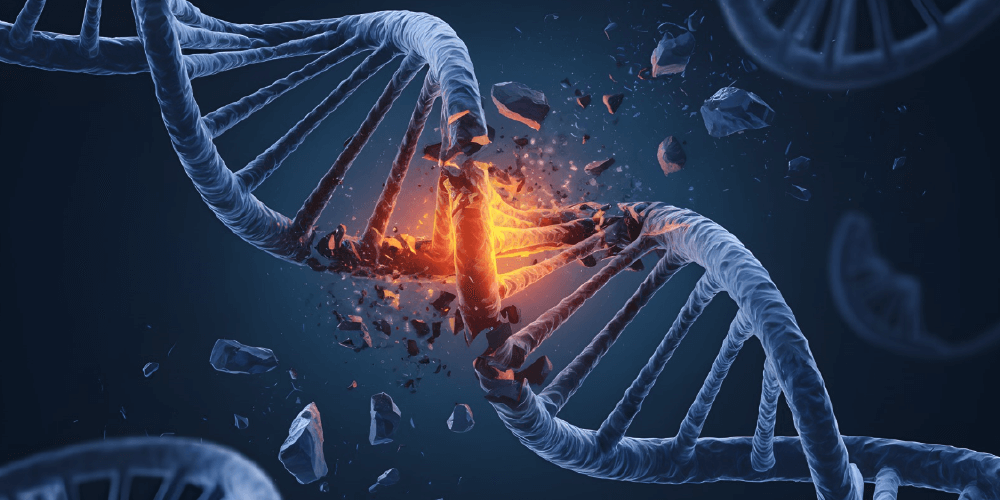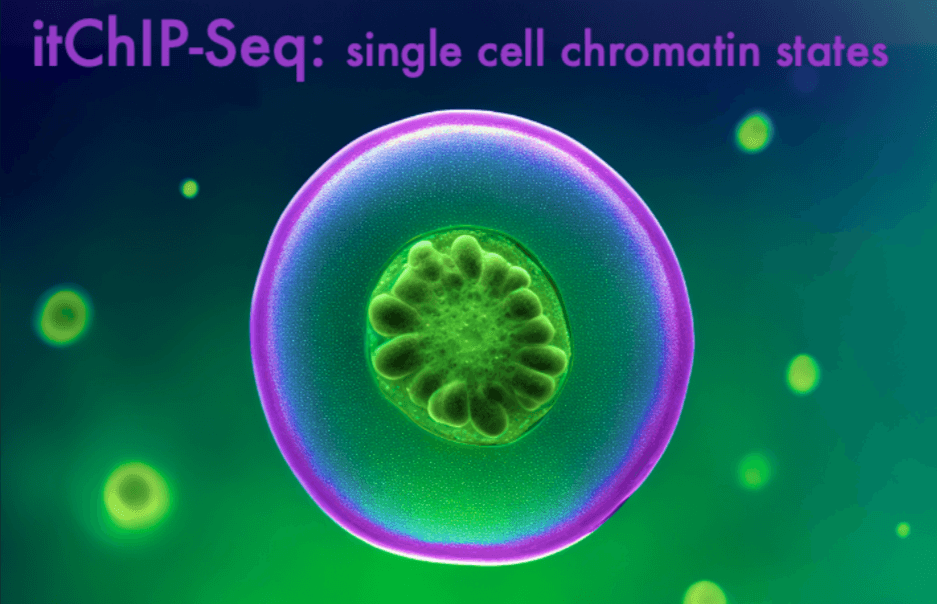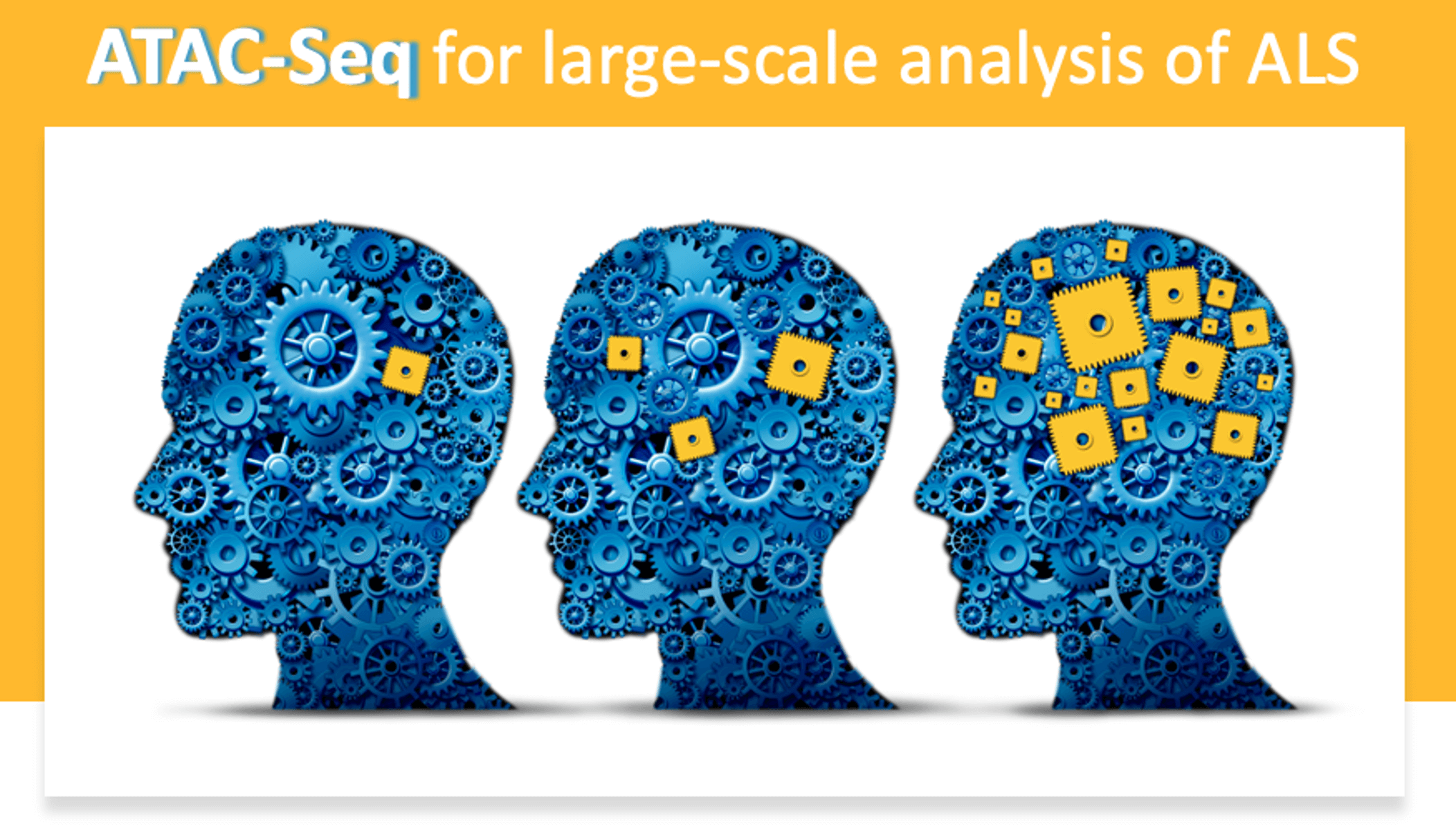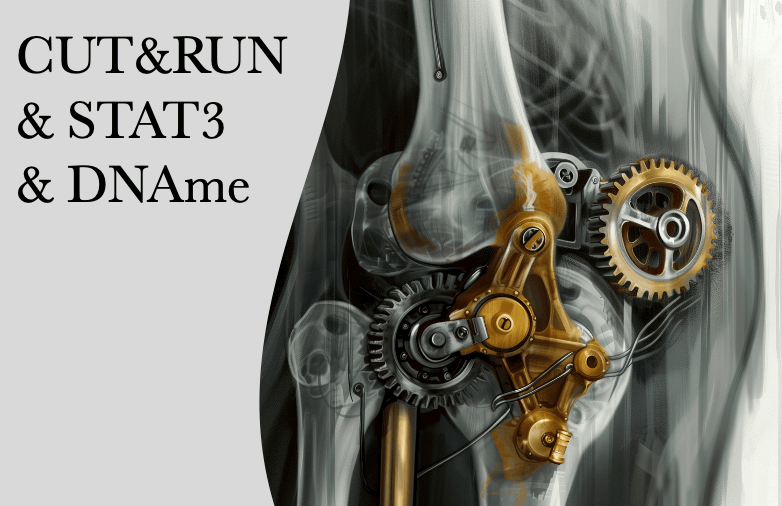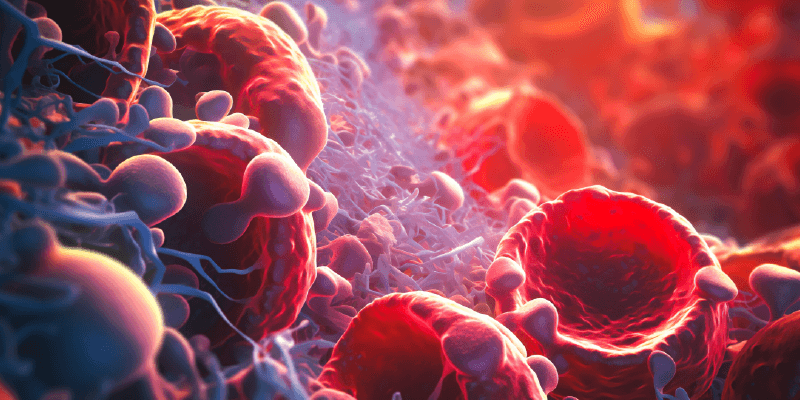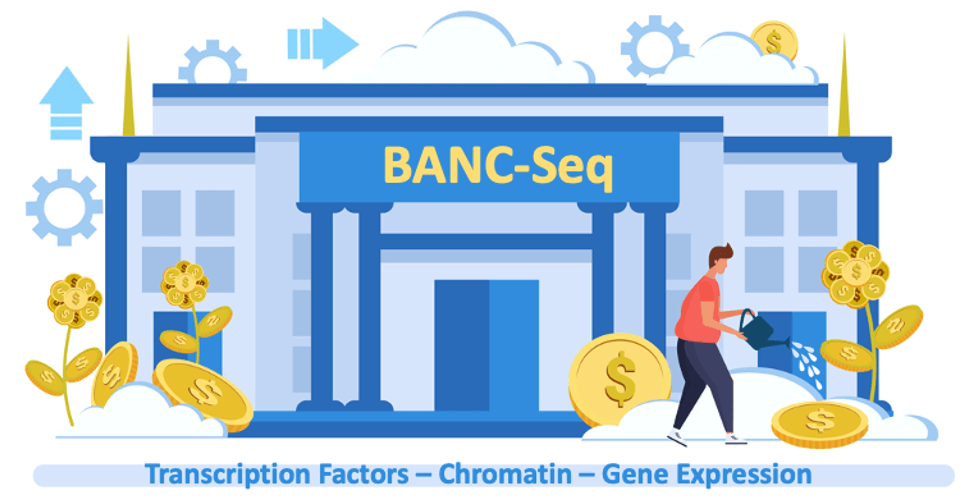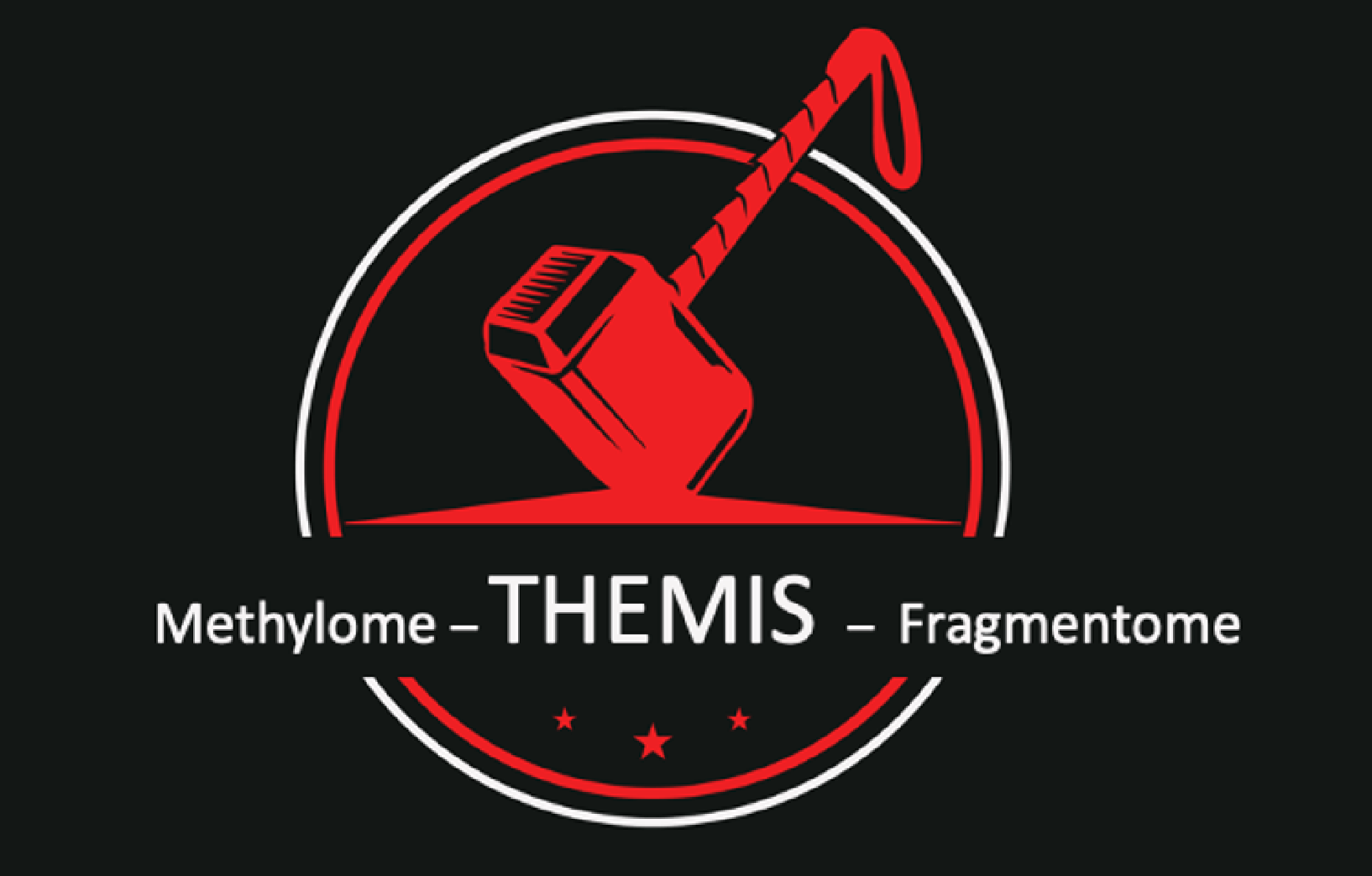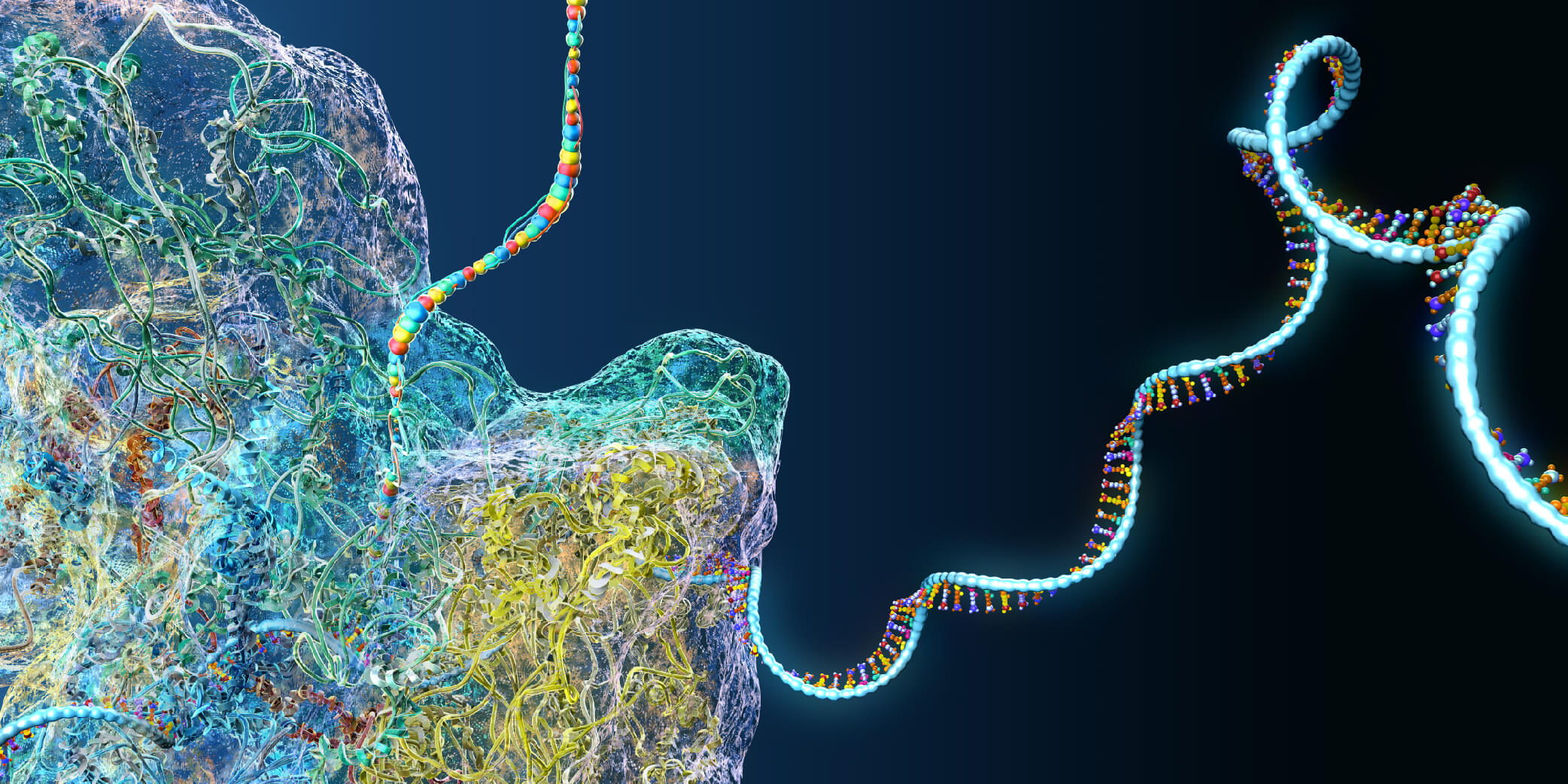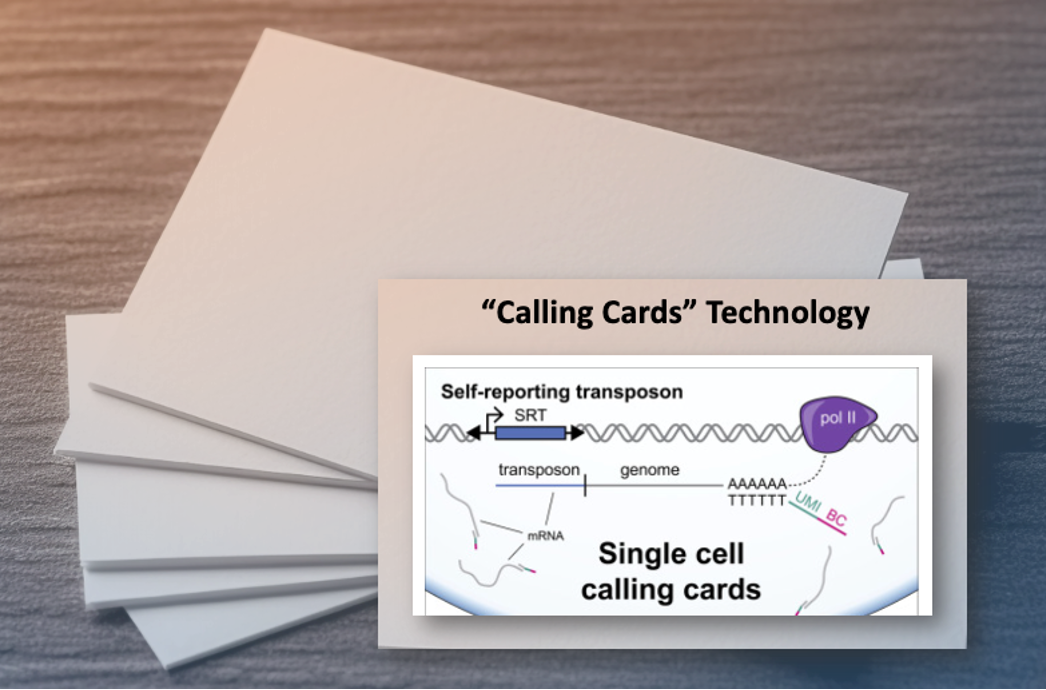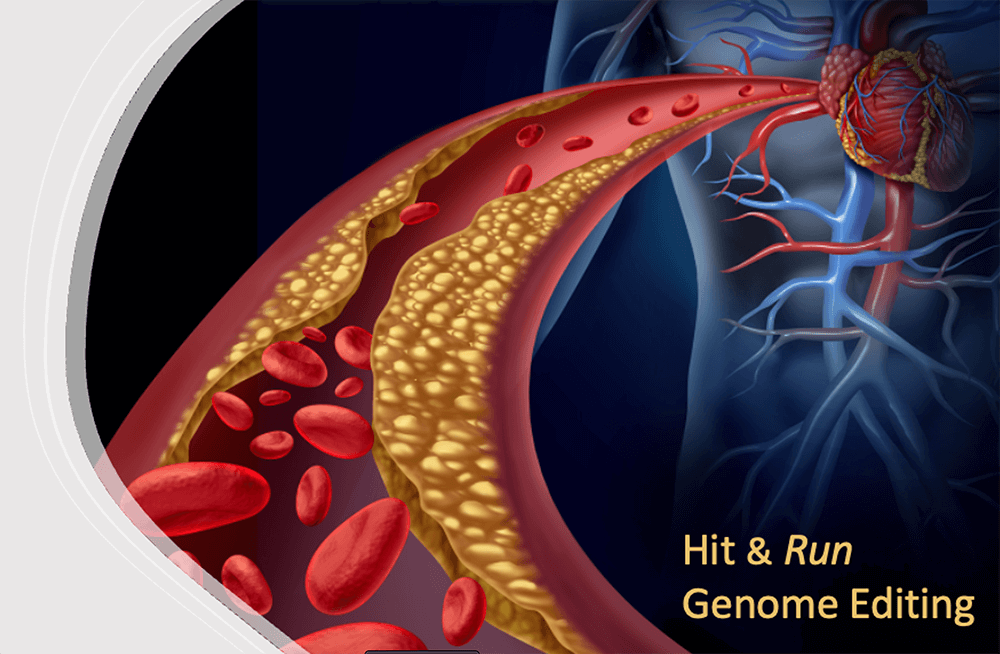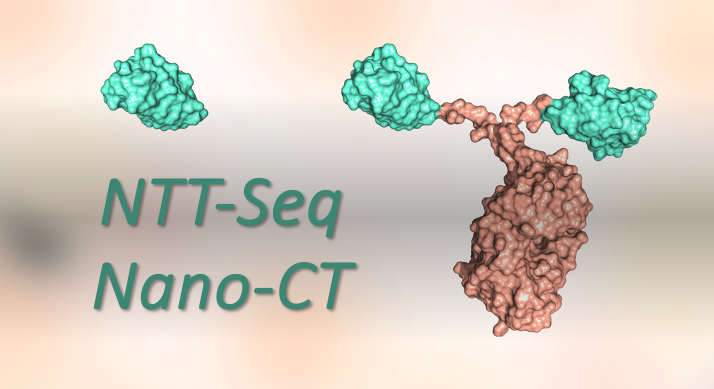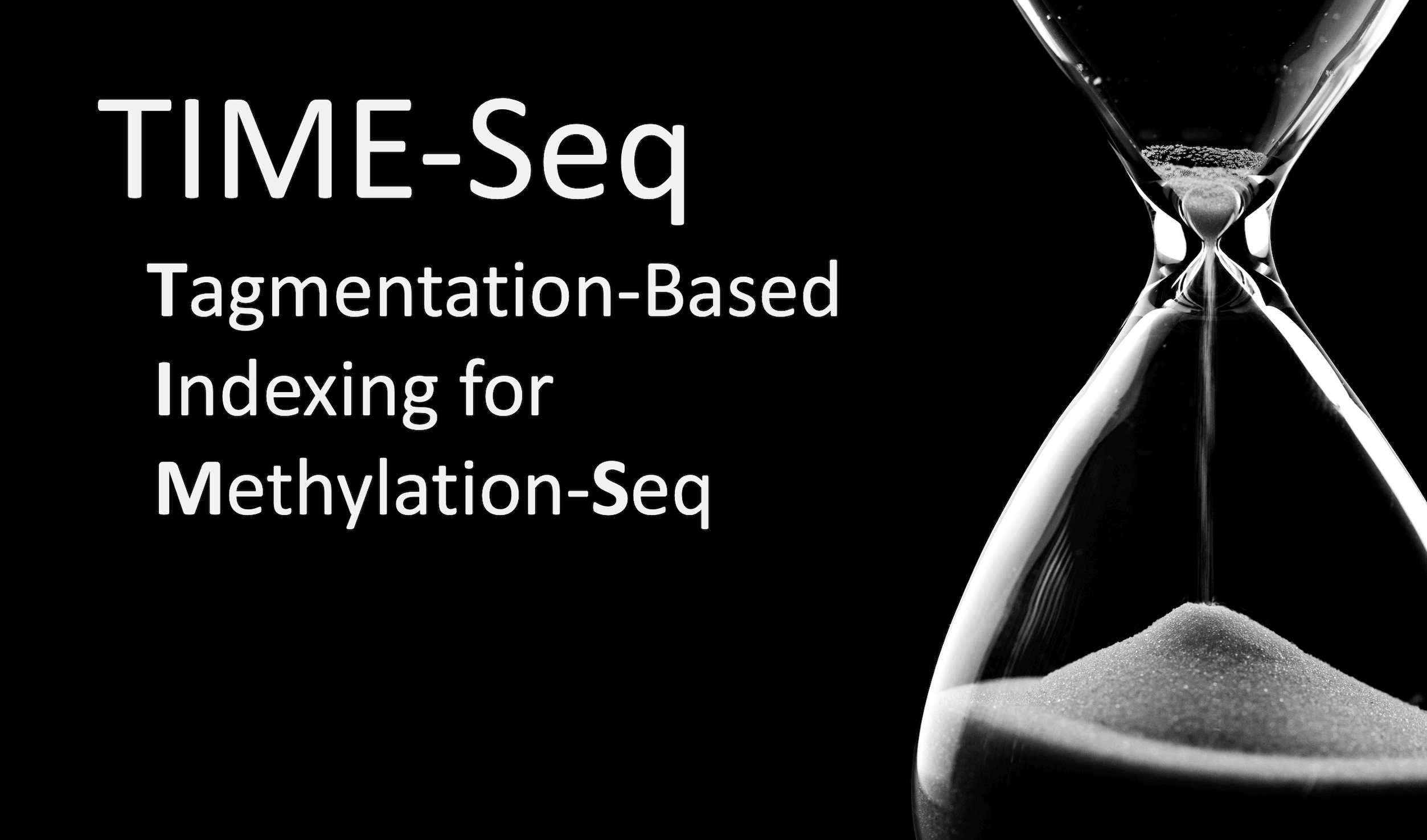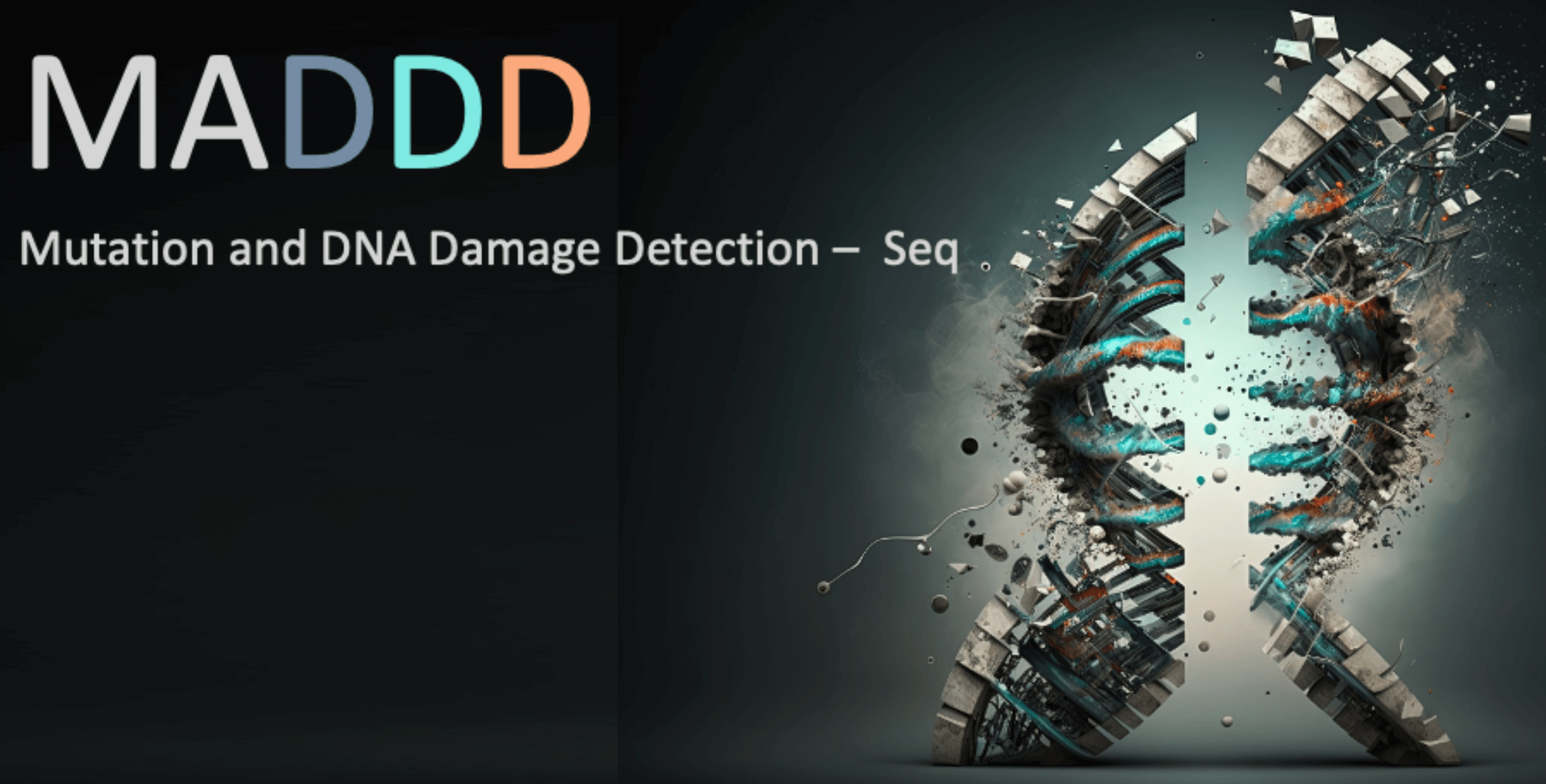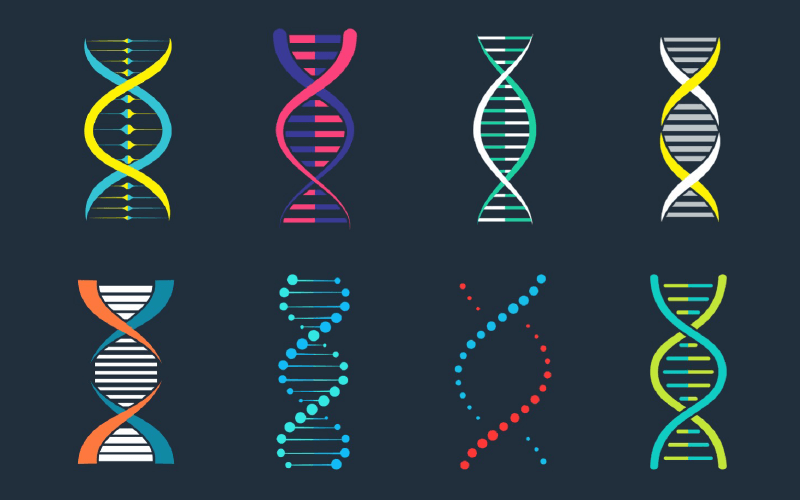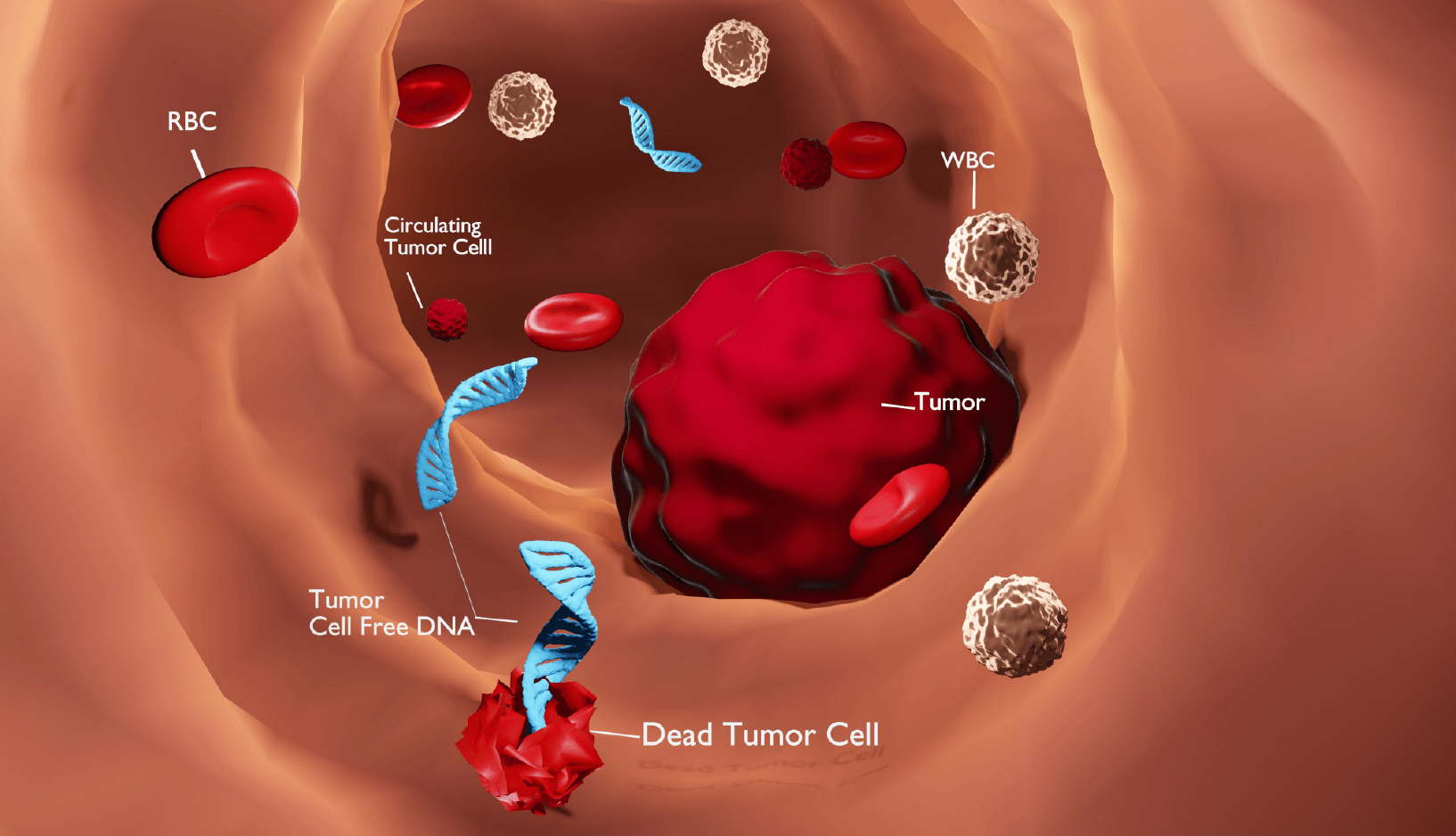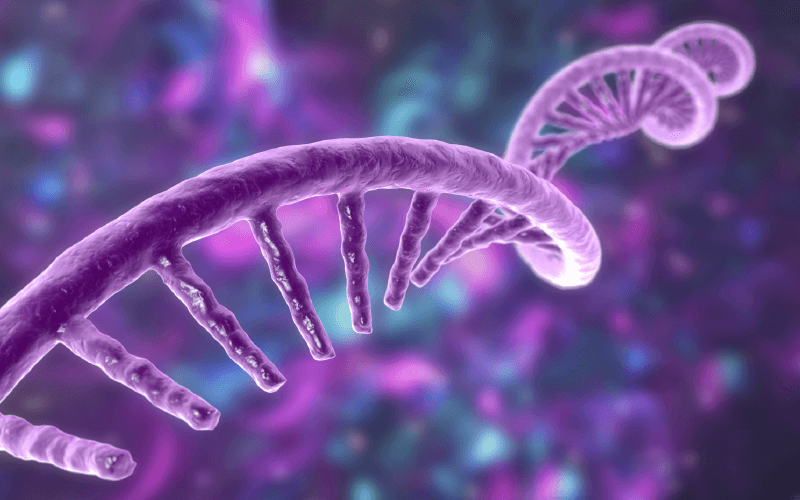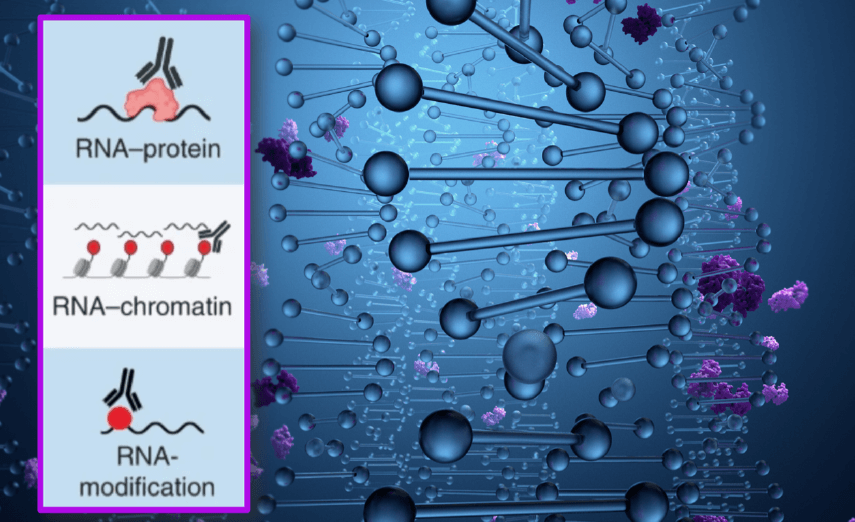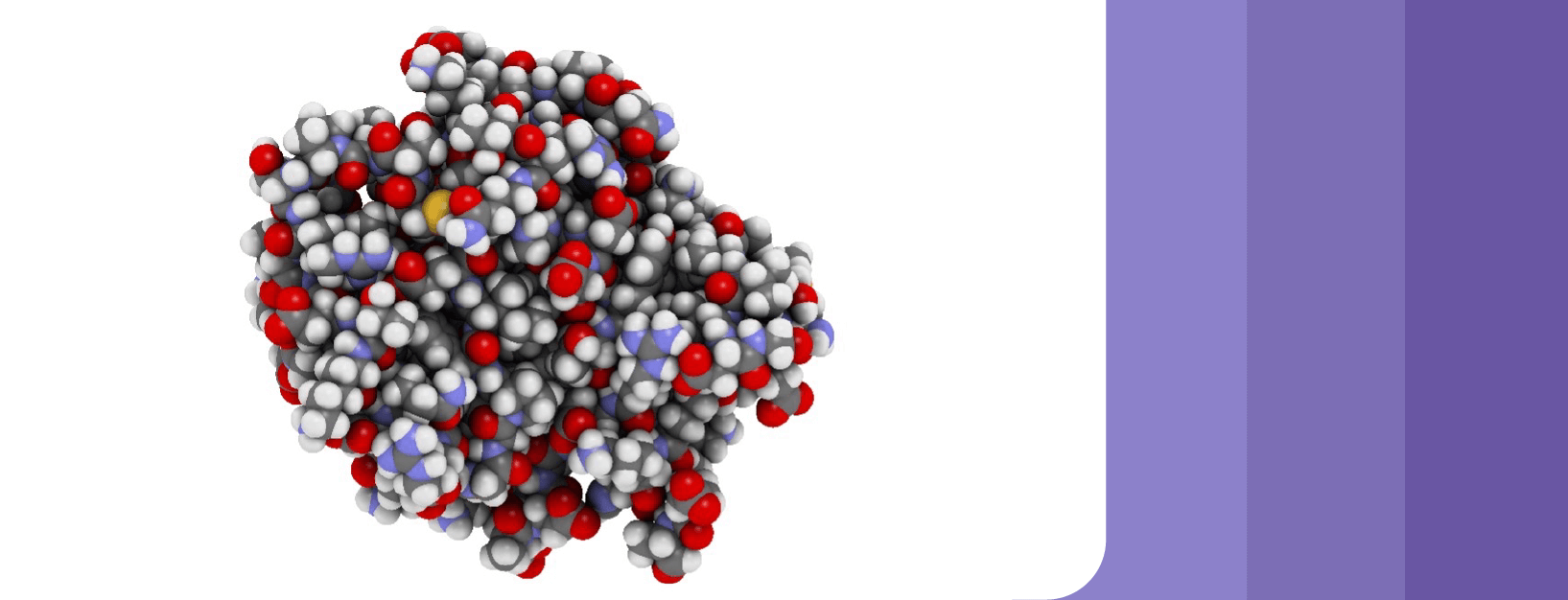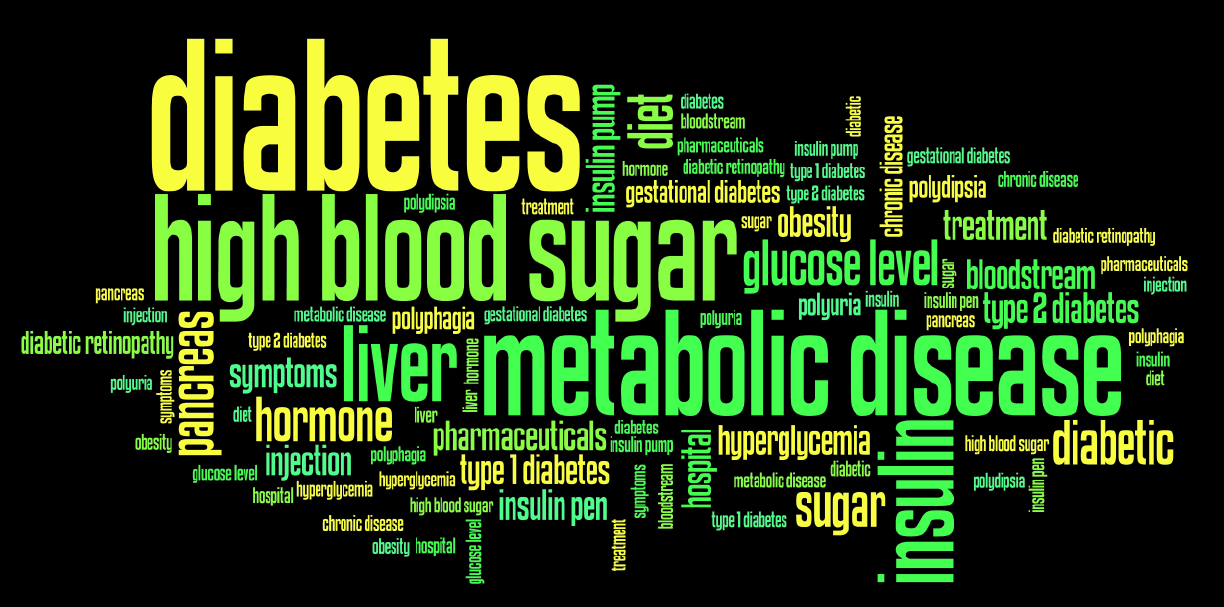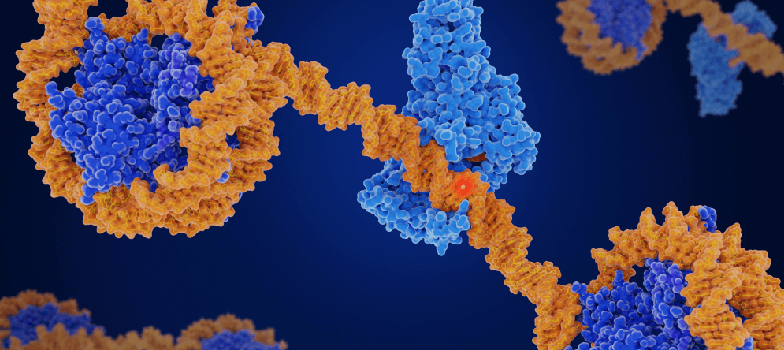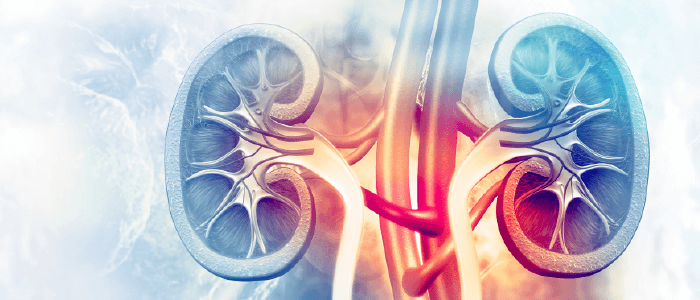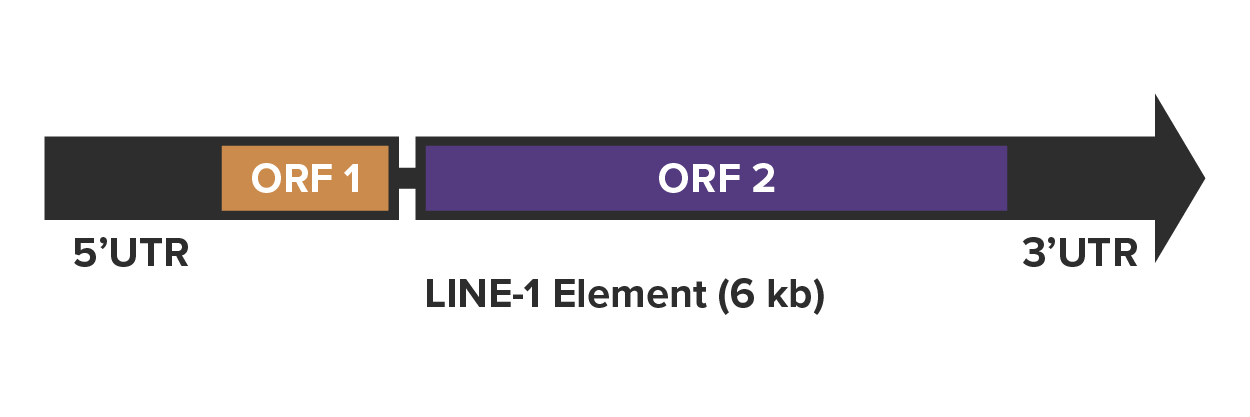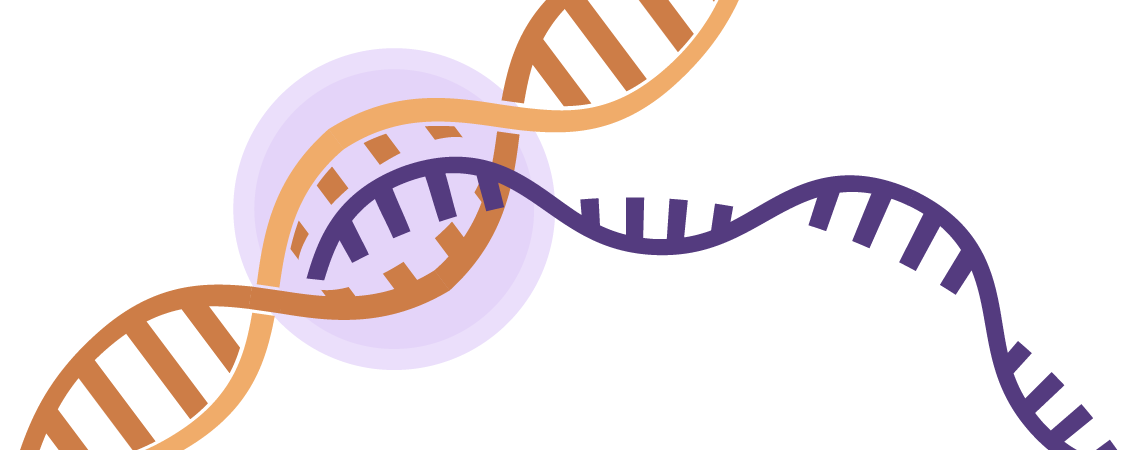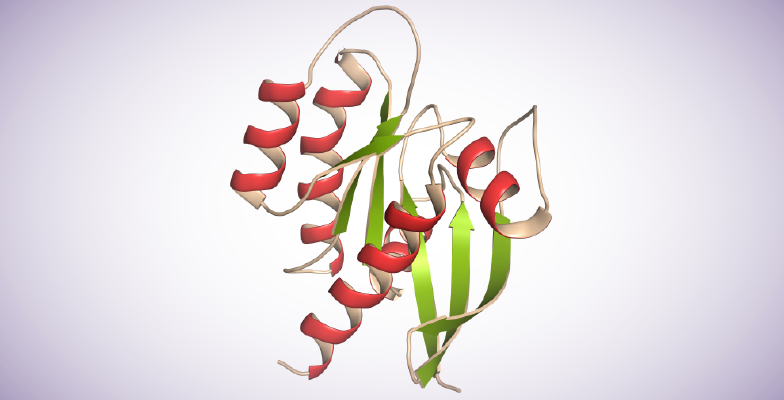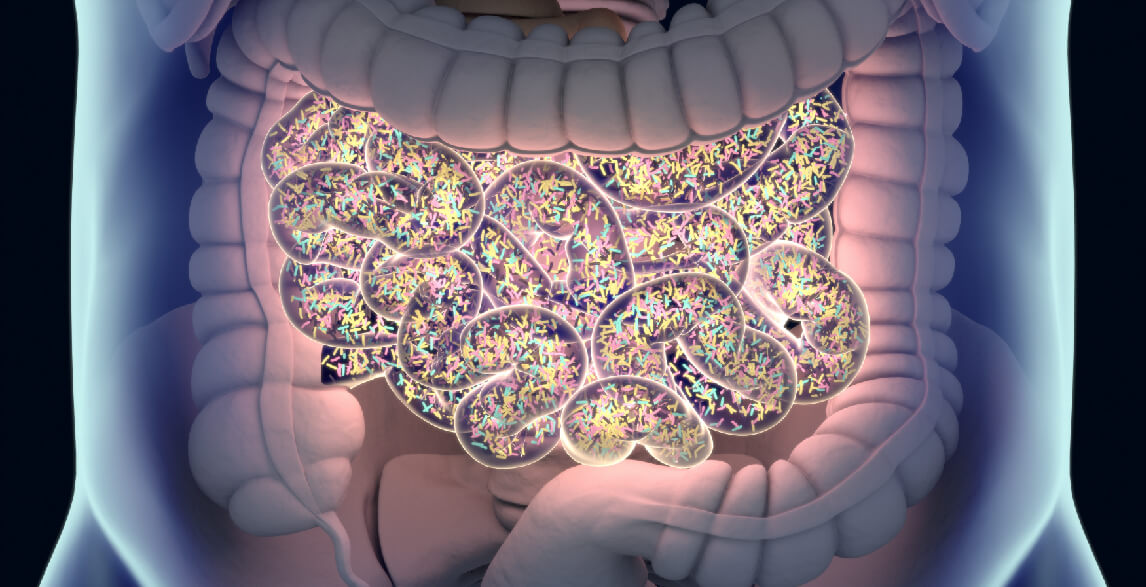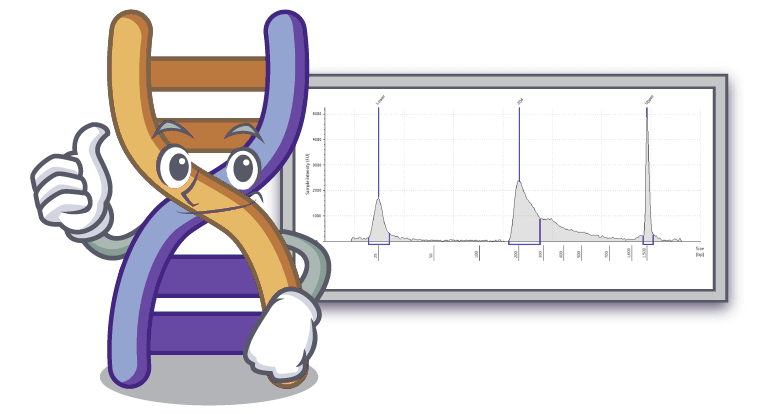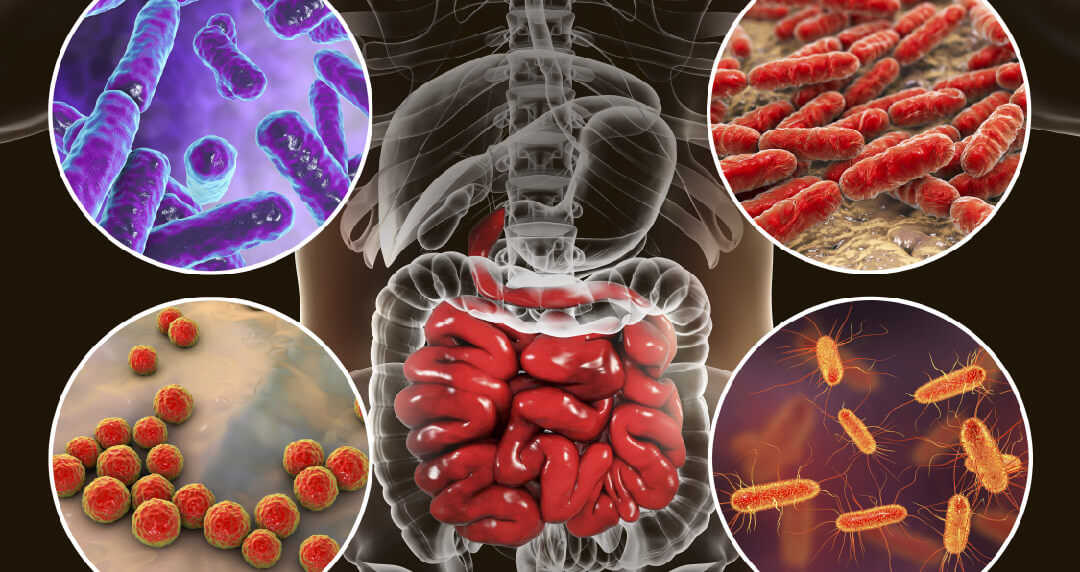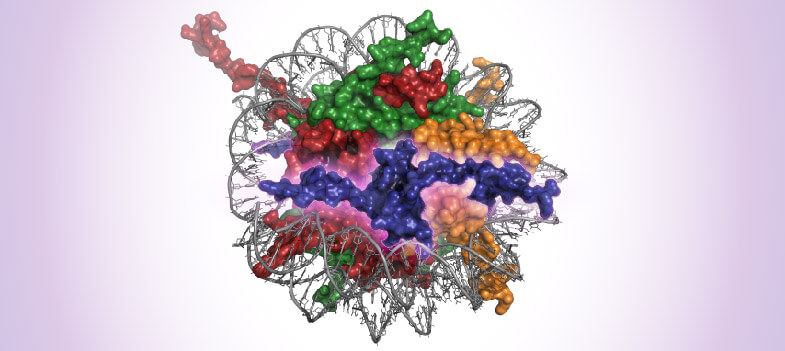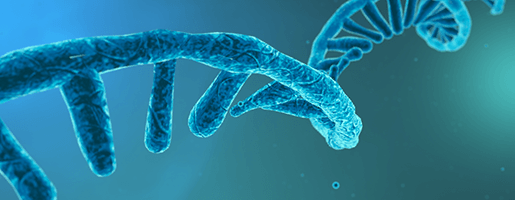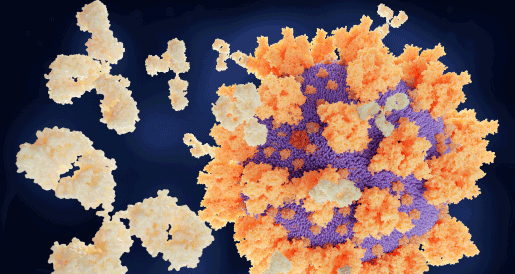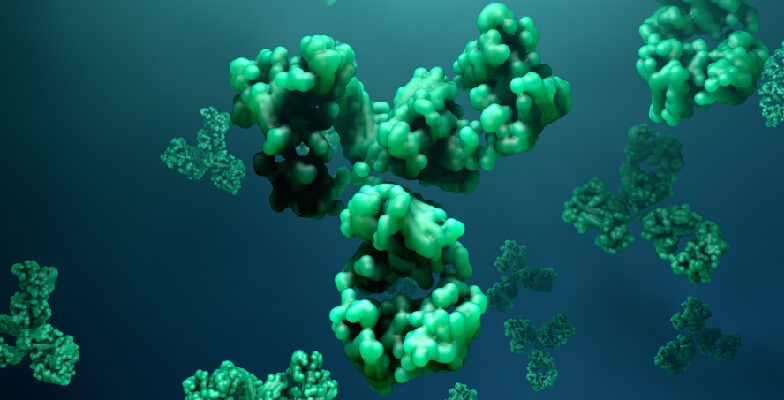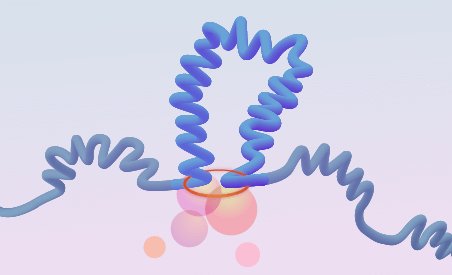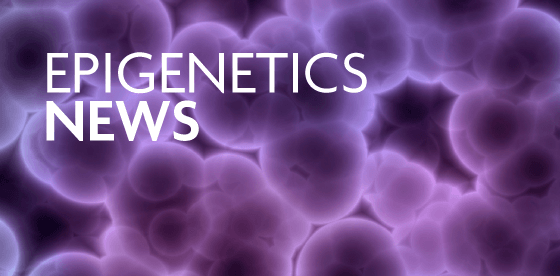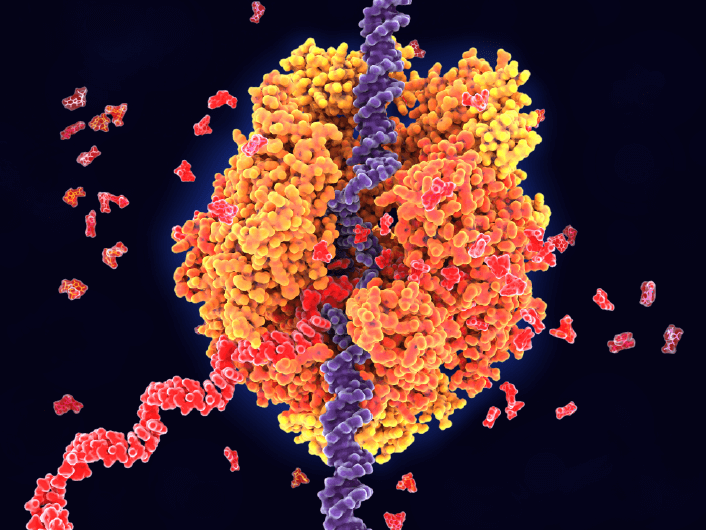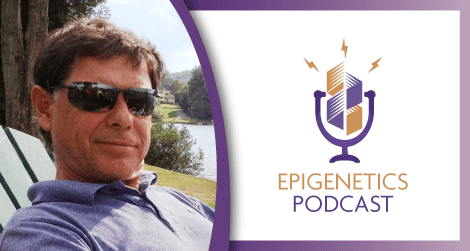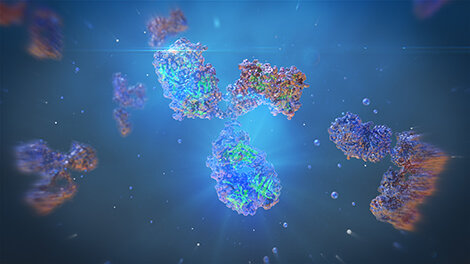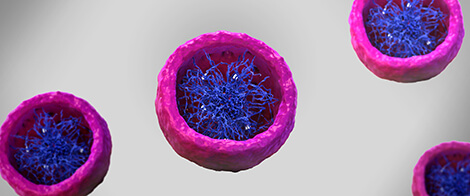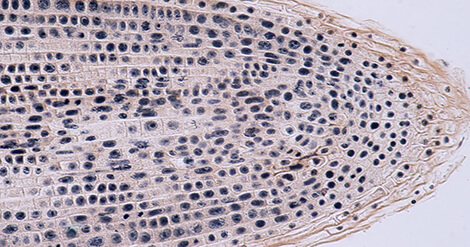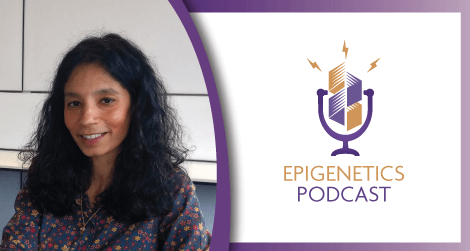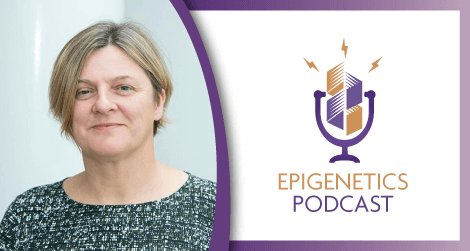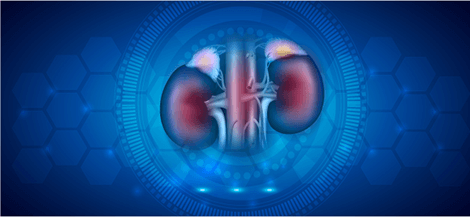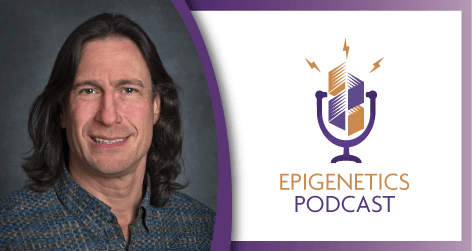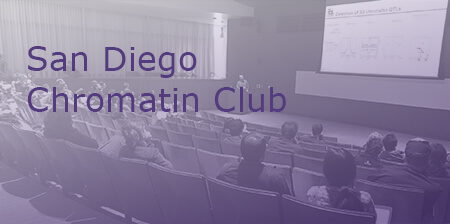<< Back to Resources Home Page
MOTIFvations
アクティブ・モティフのエピジェネティクスブログ
アクティブ・モティフのブログページへようこそ -最新のエピジェネティクスニュース、最先端のエピゲノミクス研究、および最もホットなエピジェネティクス技術のアプリケーションに関する最新情報のソースとしてご活用ください。DNAメチル化、クロマチン、ヒストン修飾、遺伝子調節研究の最新情報をお届けします。
FILTER:
All
Featured
Techniques
Guides
News
Researchers
Aging
Cancer
DNA Methylation
RNA
Chromatin
Metabolism
PeCan-Seq: A New Method for Cell-free DNA Analysis in Pediatric Cancer
July 1, 2025
As we continue to look for the best approach to utilize liquid biopsies for a range of diseases and diagnostic tools, the new and minimally invasive PeCan-Seq deep sequencing method brings the cost-effective analysis of cell-free DNA from liquid biopsies to pediatric cancer cases. Get caught up on the latest research in our easy-to-read blog!
Read More
Battling Cancer with an NRAS Mutant-specific Monobody
June 9, 2025
A new study from the laboratories of Shohei Koide and John P. O’Bryan reports the development of Mb24 – an NRAS mutant-specific “monobody” that may represent a new weapon in the battle against certain types of cancer. Take a few minutes to see what it’s all about in our latest blog!
Read More
The Search for a Therapeutic Chink in Inhibitor-resistant an NRAS Mutant Tumor’s Armour
June 9, 2025
While searching for a therapeutic vulnerability in MAPK inhibitor-resistant NRAS mutant tumors, researchers led by Jessie Villanueva at the Wistar Institute identified S6K2 as a potential chink in melanoma's armor. Catch up on their findings in our latest overview of NRAS mutation biology and approaches!
Read More
COATE-Seq Enables Fetal Cell-free DNA Screening in Maternal Liquid Biopsies
May 8, 2025
Cell-free DNA screening in maternal liquid biopsies can be enormously important for early identification of a range of genetic conditions. Our overview of the new approach highlights the potential of a prenatal cell-free DNA screening technique known as “COATE-seq” in the detection of fetal genetic conditions in maternal blood plasma samples in at-risk pregnancies.
Read More
cfDNA in Urine – New data for DNA Fragmentation Hotspots and Bladder Cancer
April 16, 2025
Liquid biopsies show their worth again! A new study reveals how the accurate and non-invasive diagnosis and monitoring of bladder cancer patients may be made possible through the analysis of cell-free DNA fragmentation hotspots in urine samples. Our series overview on cell-free DNA as a biomarker continues!
Read More
How to: Long-read Sequencing of cfDNA from Patient-derived Liquid Biopsies
April 8, 2025
Catch up on a new approach to sequencing of cfDNA from patient biopsies. Researchers at University of Manchester have shown how long-read sequencing of cell-free DNA in liquid biopsies using an Oxford Nanopore Technology platform is a robust alternative to short-read sequencing that may support improved cancer patient management.
Read More
The Latest ChIP Tip – How to Measure Single-cell Chromatin States with itChIP-Seq
March 26, 2025
Researchers headed by Aibin He at Peking University recently reported itChIP-Seq - indexing and tagmentation-based ChIP-Seq - as a simple, cost-effective, and widely applicable means of measuring chromatin states in low-input cell and single-cell samples. This exciting technique became the basis for Active Motif’s TIP-ChIP method – making the approach easily available for your workflow. Learn how it works!
Read More
The First scMultiomic Atlas of Tissue Development – Transcriptomic and Epigenetic Profiling with CUT&RUN
March 17, 2025
Keen-eyed researchers led by Katia Del Rio-Tsonis at Miami University have provided a clearer view of lens development and disease. See it their way as they combine transcriptomic and epigenetic profiling with CUT&RUN to develop the first single-cell multiomic atlas of lens development!
Read More
Classified: A Cell-Free DNA Cancer Signature Ensemble Classifier
February 25, 2025
Cell-free DNA analysis supports the development of a cancer signature ensemble classifier for non-invasive cancer detection and enhanced patient management. Access and get up to date on this potential breakthrough in patient management, bench to beside epigenetics!
Read More
Can We Manage Cancer with NEMO Analysis of cfDNA in Liquid Biopsies
February 19, 2025
A team led by Francesca Demichelis and Misha Beltran reports the development of the "NEMO", which assesses DNA methylation at selected regions in cell-free DNA from liquid biopsies to provide a non-invasive means of disease management in aggressive prostate cancer forms. Catch up on this new method!
Read More
A Non-invasive Epigenetic Strategy Improves Alzheimer's Disease Diagnosis
January 29, 2025
As we move closer to a “simple blood test” approach to detect and catch disease at its earlier stages, researchers from the lab of Maite Mendioroz at Navarrabiomed report on how the non-invasive analysis of DNA methylation biomarkers in the blood of affected patients may significantly improve the diagnosis of Alzheimer's disease. Our quick read will get your caught up on this important work.
Read More
Exploring ALS (Amyotrophic Lateral Sclerosis) with iPSCs and ATAC-Seq
December 12, 2024
A new study from the Frankel laboratory at MIT uses ATAC-Seq to deliver large-scale analysis of iPSC-derived motor neurons. Catch up on this approach to explore ALS pathogenesis and identify novel new therapeutics!
Read More
Success Story - Multiomics (snRNA-Seq / snATAC-Seq) Identifies Dementia Targets
December 3, 2024
A new study employs single-nucleus RNA-Seq/ATAC-Seq to identify potential pan-dementia and dementia-specific therapeutic targets. Get caught up on research from the labs of Jessica E. Rexach and Daniel H. Geschwind at UCLA applying this multiomic approach to human brain samples and pave the way toward the development of safe and effective therapeutics for various forms of dementia.
Read More
Multiomics (RNA-Seq and ATAC-Seq) Forge the Way Towards a Better Understanding of Type 2 Diabetes
November 6, 2024
A fascinating new study from researchers at the Jackson Laboratory and led by Duygu Ucar and Michael Stitzel combines transcriptomic and chromatin accessibility profiling in human pancreatic islet cells to gain new epigenetic insight into the pathogenesis of type 2 diabetes. Their multiomic approach incorporates both ATAC-Seq and RNA-Seq for complete picture of gene expression.
Read More
Can we detect Parkinson’s Disease....looking at DNA Methylation?
October 28, 2024
The epigenetic analysis of liquid biopsies of Parkinson's disease patients and healthy controls suggests differential DNA methylation patterns as a potential biomarker. In this blog, we continue our series on DNA modifications and DNA damage as key indicators of health and disease.
Read More
CUT&RUN reveals STAT3-regulated DNA Methylation in Cartilage Development and Disease
October 10, 2024
The application of the CUT&RUN assay has helped define the importance of STAT3-regulated DNA methylation in cartilage development and disease. We take a look at how Steve Horvath and Denis Evseenko applied CUT&RUN to help show that DNA methylation promotes a youthful epigenetic state in articular chondrocytes. Check out this fascinating study for those with creaking knees!
Read More
Cutting Through CD8 T Cell Heterogeneity with CUT&RUN
September 25, 2024
Transcriptomic and epigenetic profiling cuts through CD8 T cell heterogeneity to describe a universal program of T cell progression toward dysfunction. We look at research from Memorial Sloan Kettering Cancer Center that uses transcriptomic and epigenetic profiling techniques, including CUT&RUN, to report on a universal program describing T cell progression in models of infection and cancer.
Read More
Deciphering the Epigenetic Regulation of HIV-1 Latency using CUT&RUN
September 12, 2024
The application of CUT&RUN helps to decipher the epigenetic mechanisms behind a range of novel therapeutic approaches. We take a look at work from the University of No. Carolina, Chapel Hill, which employed CUT&RUN to decipher epigenetic regulation of HIV-1 latency. They report a critical role for histone deacetylases, which may aid the development of therapies that induce complete viral clearance.
Read More
Invest in BANC-Seq, a New Method to Analyze Transcription Factor Binding to Chromatin
August 27, 2024
Binding affinities to native chromatin by sequencing (BANC-Seq) represents a fast, sure-fire method to measure transcription factor binding affinities for chromatin, incorporating binding affinity data when investigating gene regulation.
Read More
The Power of THEMIS – a cfDNA Methylome & Fragmentome Tool for Early Cancer Detection
August 16, 2024
Integrating cell-free DNA methylome and fragmentome data into the ensemble THEMIS classifier can improve the early detection of cancer. Why hasn’t this been done before? Our review of this new approach in Nature Communications will get you thinking.
Read More
HiDEF-Seq: Exploring How ssDNA Mutations Get Their Start
August 7, 2024
In our continuing series bringing you the latest Epigenetic and Genomic methods, we present a look at HiDEF-Seq – Hairpin Duplex Enhanced Fidelity sequencing – which reveals alterations to single-strand DNA that can give rise to double-strand DNA mutations. For the DNA Damage crowd!
Read More
Modulating m6A Levels with Small-molecule Inhibitors - Why Target RNA Modifications?
July 25, 2024
A new study by Cai-Guang Yang at the University of Chinese Academy of Sciences describes their work with small-molecule FTO inhibitors that modulate m6A levels. which may support basic epigenetics research and drive novel anti-cancer therapies. Our overview of the approach will get you up to speed with RNA Methylates, Readers, and Demethylates – all with huge potential in this treatment approach.
Read More
Epigenetic Drug Screening in Patient-derived Organoids Identifies Potential Treatments for Aggressive Breast Cancer
July 15, 2024
We present the key aspects of a new study that reports how patient-derived organoids represent a robust platform for the screening of epigenetic drugs that may represent novel and effective triple-negative breast cancer treatments. Catch up quickly with our article on this important work by Xiali Yu and Xiaomao Guo from Fudan University.
Read More
Parkinson's Disease Described at Single-cell Epigenetic & Transcriptomic Level
June 21, 2024
Paired transcriptomic and epigenetic analyses in single brain cells has illuminated which cells and what mechanisms are involved in age-related neurodegenerative disorders. Thanks to new research from the Yoshiaki Tanaka lab at Université de Montréal and Yoon-Seong Kim at Rutgers University. We present an overview of how they employed this paired profiling to post-mortem brain samples to explore the mechanisms involved in normal aging and Parkinson's disease development!
Read More
Epigenetic Changes Can Prompt Tumorigenesis, Even in the Absence of Driver Mutations
June 12, 2024
A fascinating new study from Université de Montpellier reveals that epigenetic dysregulation, via transient suppression of polycomb-driven transcription, can induce tumorigenesis in Drosophila – in the absence of driver mutations! Check out this helpful overview of the work to learn how this may impact our way of thinking about cancer mechanisms and research.
Read More
Multiomic Analysis of Stem Cell-derived Organoids
May 23, 2024
The analysis of transcriptional and chromatin accessibility profiles during the differentiation of human stem cell-derived kidney organoids provides a deeper understanding of organogenesis. We take a look at research from Washington University and MRC Laboratory in the UK, using single-nucleus ATAC-Seq and RNA-Seq to reveal the vast potential of stem cell-derived kidney organoids in understanding the gene regulatory networks controlling kidney organogenesis. Read all about both studies here!
Read More
Calling Cards Technology Improved by Barcoded, Self-Reporting Transposons
May 13, 2024
Researchers from Washington University recently reported barcoded self-reporting transposon “Calling Cards” technology as an improved means to detect transcription factor binding sites. In this blog, get a concise overview of the method and how this advance supports improved exploration of transcription factor binding in parallel with gene expression changes.
Read More
FloChIP: A Quick and Easy ChIP-Seq Technique That Makes Epigenetics Go with the Flow
April 15, 2024
Do you want to go with the 'FloChIP'? Researchers from École Polytechnique Fédérale de Lausanne now report on a flexible, reproducible, and automated microfluidic ChIP platform that facilitates epigenetics experiments by improving protocol speed, reducing costs, and maintaining sensitivity!
Read More
DBiT-Seq Takes Epigenetic and Transcriptomic Analysis to the Spatial Dimension
March 29, 2024
While researchers often study cells in isolation, their spatial location and surroundings in a tissue context play critical roles. Methods that enable epigenetic and transcriptomic analysis in the spatial dimension are becoming more valuable. Check out our recent summary of articles, both new and old, that employ and then develop DBiT-seq, Deterministic Barcoding in Tissue for spatial-omics Sequencing.
Read More
NTT-Seq and Nano-CT: Nanobody-based Techniques that Deliver Epigenetic Profiles at the Single-cell Level
March 11, 2024
The recently developed NTT-Seq (nanobody-tethered transposition followed by sequencing) and nano-CT (nano-CUT&Tag) techniques apply nanobodies - small single polypeptide chain antibodies - to support the profiling of multiple epigenetic modalities at single-cell resolution. Get caught up with the latest in multiplexing and single-cell methods in this insightful blog article!
Read More
孤発性ALS患者のエピゲノム解析 ― R-loop & DNAメチローム
February 22, 2024
ハンガリーの研究グループが、孤発性の筋萎縮性側索硬化症患者における遺伝子変異、DNAメチローム、R-loop凝集を網羅的に解析してまとめたデータセットを公開しました。難解に思えますが、ヒト疾患におけるエピジェネティクス解析の重要性を改めて示す重要なコンセプトが含まれるかもしれません。
詳細はこちら
TIME-Seq – The Cost-effective Future of High-accuracy Epigenetic Clock Construction?
February 1, 2024
In this blog, we take a look at the exciting new research from David Sinclair’s lab at Harvard University and their new “TIME-Seq” technique, which promises a straightforward and cost-effective means of constructing high-accuracy DNA methylation-based epigenetic clocks!
Read More
Epigenomic Analysis of Cancer Liquid Biopsies - The Power and Limitations
January 17, 2024
The straightforward epigenomic analyses of liquid biopsies from cancer patients represent a minimally invasive means of understanding tumor gene expression programs and supporting patient management. Read how cfDNA as a sample type and new approaches including cfChIP-Seq and cfMeDIP-Seq are being explored for disease profiling.
Read More
DNA Damage and Mutations Causing Problems? Don’t Get Even, Get MADDD-Seq!
December 7, 2023
A new preprint describes the principles and future applications of MADDD-Seq, a new technique which simultaneously detects DNA damage and mutations in a single assay. Check it out!
Read More
Kacme – A New Histone H4 Modification Delivers Non-Mutually Exclusive Histone Acetylation and Methylation
November 28, 2023
Heads, Tails, or Heads and Tails? Researchers led by Matt Simon at Yale recently reported the non-exclusive nature of histone lysine methylation and acetylation on histone H4 in their paper describing "Kacme" as a novel and crucial post-translational modification! Learn a bit about this novel new PTM.
Read More
注目の5hmC:歴史、検出法、アプリケーション
November 9, 2023
エピジェネティクスの研究が進むにつれて、5hmCやその他のエピジェネティックなDNA修飾の重要性に関する私たちの理解がますます深まり、治療や疾患管理の新たな方法が開発されようとしています。しかし、現実にはいまだに多くの疑問が残っています。例えばDNAがどのようにして活発に脱メチル化されるのか? 5hmCはどこに存在し、どのような役割を果たすのか?これらの疑問点など、このブログで紹介しています。
詳細はこちら
Shifting the Paradigm – The Critical Role of Transcription Factor Interactions with RNA
October 19, 2023
In this article, we focus on some of the new research reports on the critical role of interactions between RNA and most transcription factors in the regulation of gene expression.
Read More
RNA and DNA Methylation Crosstalk – Regulating Transposable Elements AND Cell Fate!
September 27, 2023
Evaluation of transposable element regulation in human embryonic stem cells reveals a critical role for crosstalk between RNA methylation and DNA methylation, both shown to have an impact on aging and cancer. In this article, we take it back to the beginning and recent discoveries on these modifications in stem cells, cell renewal and how this may affect tumorigenicity and multipotency.
Read More
Epigenetic Reprogramming Reverses Age-related Alterations
September 14, 2023
Induced reprogramming can prompt genome-wide epigenetic alterations that reverse a multitude of age-related alterations observed in cells. In this blog, we look at the surprising connection between epigenetics and the so-called “Yamanaka factors” in support of the increasing application of epigenetic approaches to aging and longevity research.
Read More
DNA Methylation’s Impact on cfDNA Fragmentation – Considerations When Choosing Biomarkers
August 29, 2023
A new understanding of how differential DNA methylation may impact cell-free DNA fragmentation may help in the identification of powerful biomarkers in liquid biopsies.
Read More
Coffee, Tea, and CpG....does your favorite beverage affect DNA Methylation?
August 9, 2023
We hear so much about how “you are what you eat” and these days also what you drink! While not dipping into the topic of wine and resveratrol, we have seen some interesting Epigenetics on coffee and tea consumption...does it have an affect on health? In this article we sip on recent data that may point to some disease risk in humans from these tasty beverages and their role in differential DNA methylation of distinct CpGs.
Read More
Discover-Seq によるCRISPR/Casゲノム編集のオフターゲット検出
July 27, 2023
DISCOVER-SeqおよびDISCOVER-Seq+は、CRISPR/Casゲノム編集のオフターゲットをin vivoで追跡し、疾患に対する新規治療アプローチの安全性確保に貢献します。このブログでは、この新しく革新的な方法を簡単にまとめました。
詳細はこちら
Keeping Up to Date with KRAS-driven Cancer
July 14, 2023
Oncogenic mutations in the KRAS proto-oncogene lead to the generation of proteins that drive the development of lung, colorectal, and pancreatic cancers. Patients with these types of KRAS-driven tumors have historically faced significant treatment challenges. The development of new strategies to target KRAS driven cancer has the potential to save thousands of lives each year. In this blog we discuss some of the exciting studies that have propelled the KRAS-centered cancer research field forward in recent months.
Read More
RIBOTACs - Converting Functional Yet Silent Binders into Potent RNA Degraders
June 22, 2023
Targeted protein degradation through proteolysis-targeting chimera (PROTAC) technology emerged as a therapeutically relevant approach to understanding disease-associated mechanisms in conditions such as cancer. The RNA-centered version of this exciting technology – RIBOTAC – comprises an RNA-binder (such as a small-molecule drug) conjugated to another small molecule that recruits and locally activates RNase L1 to induce the enzymatic cleavage of a target RNA. How does it compare? Learn more here!
Read More
Reverse Transcribe and Tagment (RT&Tag): A Novel Technique to Explore Chromatin-Associated RNA
May 19, 2023
The novel RT&Tag technique supports the tagmentation-based mapping of interactions between RNA and chromatin in intact eukaryotic nuclei.
Read More
自然免疫における異常なR-loop:敵か味方か?
May 9, 2023
異常なR loop形成に反応して誘導されるRNA-DNAハイブリッドの細胞質への蓄積が、自然免疫反応を介して細胞死を引き起こします。このブログでは、疾患に関連する新たな細胞死のメカニズムについて紹介します。
詳細はこちら
The Intertwined Lives of SIRT6, DNA Damage Repair, and Longevity
April 25, 2023
Sirtuins are a hot topic in slowing down aging. Here we present a roundup of research articles provides a recent history of the intertwined lives of SIRT6, DNA damage repair, epigenetics, and longevity!
Read More
LINE-1 Transposable Elements: Can they Provide Liquid Biopsy Biomarkers for Early Cancer Detection and Management?
April 4, 2023
Detection of LINE-1 ORF1p in liquid biopsies has been proposed as an effective means of diagnosing cancer early and improving therapeutic outcomes. In this article, we take a look at two related, innovative studies describing how LINE-1 transposable elements may provide new biopsy biomarkers whose detection will improve the early diagnosis and long-term management of many cancers.
Read More
KRASの研究と薬剤開発の戦略
March 8, 2023
RASは最も一般的ながん遺伝子の一つであり、ヒトのがんの20-30%に関与しています。その中でもほとんどはKRASによるものです。現在、研究は主にKRAS変異体を中心に行われていますが、直接KRASを抑制する方法の開発は、最近10年間に始まったばかりです。最新の研究では、KRAS活性化のメカニズムに新しい知見が得られ、新しい薬剤の開発が進んでいます。このブログでは、RASファミリータンパク質の歴史、その突然変異の影響、そしてKRASが薬剤の標的として注目されている現状を紹介します。
詳細はこちら
African Turquoise Killifish – A Colorful Up-and-Coming Model in Aging Research!
February 7, 2023
The connection between epigenetics, cell senescence and aging continue to grow. As the field expands, so does the range of organisms we’re finding well-suited for the task. Here we present a roundup of all recent protocols and research concerning the African turquoise killifish and its potential as a model for aging. This up-and-coming model may be everything you need for your aging-based research.
Read More
Early-life Exposome Accelerates Epigenetic Aging – Is There No Going Back Now?
January 17, 2023
Accelerated epigenetic aging occurs in children exposed to the early-life exposome - the sum of exposures to environmental stressors during pre- and post-natal periods.
Read More
DNA Methylation and Aging: Best of Friends, Worst of Enemies?
January 10, 2023
New research into links between DNA methylation, aging clocks, and Alzheimer’s disease. We look at two recent studies involving epigenetic clocks and epigenetic editing via CRISPR/Cas9 that further demonstrate the link between DNA methylation alterations and normal human aging.
Read More
DNA Methylation for Predicting Prostate Cancer: Where Do We Stand?
December 13, 2022
Some say that Epigenetics touches everything. The marriage between DNA methylation, one of the earliest and most studied of epigenetic mechanisms, and its potential to be a powerful biomarker for disease is exciting and promising. In this overview, we look at prostate cancer research in particular - where we stand in this regard, and also a “new” biomarker associated with voltage-dependent calcium channels!
Read More
Mass Spectrometry – Attaining Massive Amounts of Histone Modification Data from Small Clinical Samples
November 9, 2022
A new advance now permits the profiling of histone modifications from vanishingly small amounts of clinical samples via mass spectrometry. The ability to profile histone modification levels in tumor subpopulations may permit the field to make massive strides forward in our understanding of tumor metastasis, intratumor heterogeneity, therapeutic responses by tumors, and the role of tumor subpopulation interactions in driving tumorigenesis and identifying potentially useful biomarkers.
Read More
Inflammaging – What Epigenetic Associations with Kidney Health Can Tells Us
October 25, 2022
Inflammaging is a somewhat new, but very engaging concept – how does our immune system affect the aging process? Here we look at research describing how accelerated epigenetic aging detected in the blood correlates with reduced kidney health as an example. These links may provide a means to further our understanding of inflammaging, and how to combat this chronic low-grade inflammatory process that may contribute to age-related disease development.
Read More
Single-Cell DNA Methylation Sequencing: Small Scale Differences Explain Big Effects!
October 13, 2022
As an epigenetic mark, DNA methylation reveals valuable information on what’s going on inside a cell. In traditional bulk sequencing methods, DNA methylation signals are averaged out so that cell to cell variability in methylation is lost. Single-cell methods for DNA methylation can reveal these hidden signatures. But gathering DNA methylation data on a single-cell level has been challenging. Here we compare methods for scDNA Methylation assays that can uncover valuable insights into cell development, disease, and brain cell heterogeneity. As these have only been around for a short number of years, it’s almost certain that we’ve only just scratched the surface.
Read More
LINE-1 Elements: Walk the LINE-1
September 13, 2022
While LINE-1 elements have been vital for fueling genetic variation and human evolution, their repression and that of other transposable elements is crucial to maintain homeostasis in cells so that our genomes continue to walk the line! Read how rogue LINE-1 expression is a target for combating its role in disease and aging.
Read More
Proteomics and Epigenetics – Two Worlds Collide to Describe Disease-Related Mechanisms
August 22, 2022
Researchers combine blood-based epigenetic and proteomic analysis to uncover the underlying disease-associated mechanisms.
Read More
Seeing the Bigger Picture – Spatially Resolving Chromatin Modification Profiles with Spatial-CUT&Tag
August 9, 2022
Spatial-CUT&Tag spatially resolves chromatin modification profiles in tissue samples to aid the exploration of epigenetic regulation, cell functions, and fate decisions.
Read More
DNA Modifications Reveal the Splendor of the Plant Epigenetic Landscape
July 22, 2022
Would you like to explore the color and beauty of the epigenetic landscape of plants? Begin your journey with a discussion of recent publications highlighting the ongoing discovery and importance of DNA modifications in various plant species.
Read More
ABBS –DNAメチル化をゲノムワイドに1塩基の解像度でマッピングする新しい方法
July 11, 2022
アクティブ・モティフは、ゲノムワイドなDNAメチル化検出のための、 Anchor-based bisulfite sequencing (ABBS)という新しい手法を開発しました。このABBSについては、Communications Biologyに掲載されました (Chapin et al., Commun Biol., 2022)。
詳しくはこちら
低コストでハイスループットな 3’-Digital Gene Expression (3’-DGE) RNA-Seq
June 14, 2022
RNA-Seqは、RNAの単離とライブラリー調製から始まりますが、RNAの扱いには注意が必要です!目に見えないRNaseの存在は、RNA抽出を初めて (たとえ100回目でも!) 行う研究者を悩ませ、夜も眠れなくします。従来のRNA-Seqでは難しかった、シーケンス深度やコストの削減が可能であり、遺伝子発現量の違いを解析するために最適化されたライブラリー調製法: 3’-Digital Gene Expression (3’-DGE) をご紹介します。
詳細はこちら
Could Long-term, Partial Reprogramming our Cells Battle Aging and Give us “Good Genes”?
June 1, 2022
Researchers reveal that long-term partial reprogramming does battle against the signs of aging and helps wild-type mice go long into a healthy old age. Here’s hoping for human healthy aging on the inside as well as the outside!
Read More
Undruggable No More – Advances for Targeting Mutant Ras Proteins and Cancer
May 17, 2022
While they may not in a song, the Ras family of proteins do take a lead in several crucial physiological processes, across species and disease states. Volumes of work have written on Ras and continues today - to decipher RAS function, and to pursue understanding of Ras mutations for diagnostic and prognostic tools. In this article, we look at RAS research strategies, key articles, and future directions in this exciting field.
Read More
PROTAC-mediated Targeted Protein Degradation in Cancer: PARP, EGFR, and SMARCAs in Focus
April 13, 2022
Proteolysis-Targeting Chimera (PROTAC) protein degraders are the emerging alternative to small molecule-based targeting. Here we look at key protein targets and discuss how PROTAC-mediated targeted protein degradation represents a promising new approach to cancer treatment.
Read More
Life in the FASTQ Lane
March 25, 2022
While many “bench scientists” are familiar with the workflows of ChIP-Seq and ATAC-Seq, the steps between sequencing and fully analyzed data is sometimes thought of as a mystery known only to bioinformatic experts. This article provides peek behind the curtain of the informatic analysis we perform as part of our end-to-end epigenetic services.
Read More
Multiomic Epigenetic Analysis Turns Short Stories into Epic Tales
March 9, 2022
A multiomics-based approach to epigenetic research through the combination of multiple next-generation techniques has the potential to turn any short scientific tale into an epic multilayered story of gene regulation!
Read More
Epigenetic Keys Unlock Secrets of the Heart
February 4, 2022
The epigenetics of cardiac disease is a growing field as researchers look for epigenetic biomarkers predictive of heart health. Can a multiomic approach get us there sooner and enable detection of heart disease early on?
Read More
ATAC-SeqおよびCUT&TagのためのライブラリーQC「私のライブラリーは大丈夫?」
December 8, 2021
アクティブ・モティフのテクニカルサポートに寄せられる質問の中で最も多いのが、「私のライブラリーは大丈夫ですか?」というものです。ATAC-seqやCUT&Tag のライブラリーの品質管理(QC)に関する実践的な情報をお届けします。アクティブ・モティフのキットを使って調製したライブラリーに期待される品質について、そして期待通りでない場合の対処法などについて、以下の資料をご参考にしてください。
詳細はこちら
RNAメチル化はR-loopを制御し、ゲノムの完全性を維持する
December 1, 2021
DNAとRNAのハイブリッドという言葉を聞いたことがあるでしょうか?R-loopと呼ばれるこれらの分子構造は、ゲノムの組織化と安定性において新たな「ホットトピック」となっています。がんや神経変性疾患に見られるゲノムの不安定性から、ゲノムを守る治療戦略のカギを握っているのでしょうか?
詳細はこちら
DNA Methylation in Cell-free DNA (cfDNA): Benefits, Limitations & Future Potential for Precision Medicine
November 2, 2021
What do we mean when they say “cell free” DNA, and why is this emerging as a potentially invaluable tool for precision medicine?
Read More
Alzheimer’s Disease: The Impact of Gut Bacteria and Hippocampal DNA Methylation
September 14, 2021
In a fascinating new article, researchers from the laboratory of Jacob Raber from the Oregon Health & Science University (Portland, OR, USA) have moved one step closer to an understanding of how complex factors such as the gut’s microbial flora and epigenetic modifications in the brain can impact behavior and cognition in a mouse model of Alzheimer's disease.
Read More
Oncohistones: Histone Mutations & Their Oncogenic Effects
June 24, 2021
Oncohistones are amino acid mutations in Nucleosomes shown to have strong correlation to many types of cancers. The cancer-type specificity of oncohistones may facilitate targeted therapy, while limiting the side effects that occur with chemotherapy. Methods to detect these mutations could also help in diagnostic and prognostic applications in personalized medicine.
Read More
Epigenetics of the Indian Cobra: Multi-Omics Breakthroughs for Recombinant Antivenom
May 11, 2021
A study which combines elegant, high-throughput, and cutting-edge omics helps to assemble the Indian cobra genome and may aid in the creation of an effective recombinant antivenom.
Read More
Complete Guide to Understanding Single‑Cell RNA‑Seq
March 4, 2021
Single-cell RNA-seq techniques have made it possible to study transcriptomics in heterogeneous samples; driving advances in our understanding of cancer, embryonic development and neurodegenerative disease. This article covers the history, protocols, and applications of Single-cell RNA-seq.
Read More
完全ガイド:ATAC-Seqの理解と使用法
February 9, 2021
ATAC-Seq法は2013年に発表された比較的新しい手法ですが、クロマチン状態をゲノムワイドに調べるための方法として、既に最も一般的で強力な手段となっています。この記事では、ATAC-Seqの原理と研究における使用例について概説します。
詳細はこちら
完全ガイド:CUT&Tagアッセイの理解と使用法
November 24, 2020
CUT&Tagは、CUT&RUNを発展させて開発されたDNAとタンパク質の相互作用を調べる新しい手法です。この記事では、CUT&Tagの長所、短所および、クロマチン免疫沈降法(ChIP)との違いについて概説します。
詳細はこちら
Beginner’s Guide to Understanding Single-Cell ATAC-Seq
September 30, 2020
In this article, we describe how the single-cell ATAC-Seq (scATAC-Seq) works and highlight the benefits and the drawbacks of scATAC-Seq relative to bulk ATAC-Seq.
Read More
SARS-CoV-2の感染を阻害するリコンビナント中和抗体の開発に関する論文公開
July 21, 2020
アクティブ・モティフと中国の研究グループは、SARS-CoV-2を標的としたリコンビナント抗体を開発しました。これらのうちいくつかは、新型コロナウイルスのスパイクタンパク質またはそこに含まれる受容体結合ドメインに強く結合し、SARS-CoV-2の感染性を効果的に中和しました。このことは、これらの抗体がCOVID-19に対する治療に利用可能であり、さらなる治療法の開発につながることを示唆しています。
詳細はこちら
リコンビナントヒト型COVID-19抗体の開発と特性評価
June 3, 2020
アクティブ・モティフは、複数のヒト型リコンビナントCOVID-19抗体を開発し、現在、研究用として発売中です。これらのリコンビナント抗体を用いた診断および治療法の開発に向けてパートナー企業または協力者を探しています。
詳細はこちら
Guide to Understanding the Benefits and Uses of Recombinant Antibodies
May 21, 2020
Antibodies are one of the most common, and most powerful, tools used by researchers. This article covers what recombinant antibodies are, and how they are different from polyclonal and monoclonal antibodies.
Read More
Improving the Resolution of Hi-C Assays with Micro-C
May 11, 2020
To study 3-D chromosomal interactions, methods like Hi-C have been developed to provide high-resolution mapping of genome-wide chromatin interactions. A new method called Micro-C has recently been reported that has higher resolution and higher signal to noise ratio than other existing methods.
Read More
Using Epigenomic Data to Accurately Predict and Distinguish Cell Types
April 28, 2020
A new research study reports development of a mathematical algorithm to analyze gene expression and Hi-C datasets that predicts cell types better than existing methods, even for large sets of cell types containing multiple different human normal and cancer tissues.
Read More
Guide to Understanding and Using Hi-C and Related Chromosome Conformation Capture Assays
April 20, 2020
There are many different ways to investigate the 3-D structure of chromatin, such as 3C, 4C, 5C, and Hi-C. This article discusses the basic methodology and applications of the most commonly-used chromosome conformation capture-based assays, with a focus on Hi-C.
Read More
Prions & Epigenetics: Prion-Mediated Inheritance of Active Chromatin States
March 25, 2020
New research identifies a prion that acts as an epigenetic, trans-generational activator of yeast genes, representing a novel mechanism for the inheritance of activated chromatin states.
Read More
DNA Methylation Changes in Vapers & Smokers
March 24, 2020
Vaping and smoking both led to similar epigenetic changes, highlighting the fact that vaping is not a healthy alternative to smoking. These results suggest that the use of the e-cigarettes should be limited, and teenagers and young adults should be discouraged from vaping.
Read More
Celebrating the 2020 International Day of Women and Girls in Science
February 11, 2020
In an effort to achieve full and equal access to and participation in science, the UN has declared February 11 as the International Day of Women and Girls in Science. To celebrate this day, we asked some of our women scientists to reflect on their experiences and offer advice to other women and girls entering biotechnology.
Read More
Complete Guide to Sonication of Chromatin for ChIP Assays
January 31, 2020
Chromatin shearing/sonication is one of the most important steps in the ChIP workflow and is generally the step that exhibits the most variability. This article discusses the differences between each available sonication method and highlights their pros and cons.
Read More
Epigenetics of Liquid Biopsies, Histone Ubiquitination, and piRNAs & SUMO
January 22, 2020
This latest epigenetics news summary covers approaches to investigate epigenetics and proteomics of liquid biopsies, a new role for histone ubiquitination in regulation of gene expression, and new insights into piRNA-mediated transcriptional silencing.
Read More
Improved High-Throughput Sonication and Epigenetic Analysis with PIXUL-ChIP
December 13, 2019
One of the key steps in the ChIP workflow is fragmentation of chromatin, and there are many ways to do it. A new sonication instrument called PIXUL was recently developed that shears DNA in a high-throughput manner and offers many advantages over other methods.
Read More
DNA Methylation & Alzheimer’s Disease, New Chromatin Analysis Method, & Non-CpG DNA Methylation
December 3, 2019
This latest epigenetics news summary covers discovery of a new biomarker that might help diagnose and treat Alzheimer’s disease, a new method to analyze the composition of different types of chromatin, and a new mechanism of gene regulation mediated by DNA methylation at non-CpG sites.
Read More
Lamin A/C Acetylation by the NSL Complex Contributes to Nuclear Architecture and Genome Stability
November 12, 2019
New research describes an interconnected web of gene regulation within the nucleus, showing that lamin A/C acetylation is critical for nuclear lamina integrity and thus plays a role in regulating chromatin structure, nuclear organization, and ultimately gene expression.
Read More
Can You Really Reverse Your Epigenetic Age?
October 1, 2019
A recent report in the field of epigenetics claimed that humans could reverse their epigenetic clock. This research led to both excitement that we might be able to take steps to live longer and healthier lives and skepticism that the results might not be real. This article covers all the details.
Read More
Celebrating 50 Years of RNA Polymerases – the Discovery that Initiated Eukaryotic Transcription Research
September 27, 2019
The discovery of RNA polymerase enzymes was first published in 1969, and the field has come a long way in the last 50 years. This article covers some seminal discoveries in transcription research, the basics of the three mammalian RNA polymerases, and how these enzymes work with other factors to synthesize RNA.
Read More
Discussing the Past, Present, and Future of Epigenetics with Active Motif Founder Joe Fernandez
September 13, 2019
Joe Fernandez, Active Motif’s founder, played a significant role in the evolution of the biotech industry. He’s seen where the industry has been, and has a good idea where it’s going. Joe opens up about how he got started in science, what excites him, and what the next big thing in epigenetics will be.
Read More
Next-Gen ChIP-Seq: Genome-Wide Single-Cell Analysis with Antibody-Guided Chromatin Tagmentation Methods
September 5, 2019
New methods are improving the efficiency of epigenomic analysis, enabling analysis of histone modifications at the single-cell level. Many of these methods are variations on Active Motif’s patented TAM-ChIP™ technology, which utilizes antibody-guided tagmentation.
Read More
How Do Nucleosomes at Centromeres Differ from Nucleosomes at Other Chromatin Regions?
September 4, 2019
Centromeres play essential roles during the cell cycle, but how centromeric nucleosomes and other proteins work together during mitosis is not completely understood. Recent research using cryo-EM sheds light on this critical process.
Read More
Using RIME to Analyze Protein-Protein Interactions on Chromatin
September 3, 2019
There are many methods for detecting protein-protein interactions. The RIME protocol is gaining popularity because of its unique advantages over the other methods. This article covers what RIME is and how it works, and provides tips to researchers that want to get started with RIME.
Read More
New Research on the Link Between Chromosome Topology and Regulation of Gene Expression
August 22, 2019
The link between nucleosome organization (and epigenetic modifications of histones) and gene expression is solidly established, but the functions of higher-order chromatin structures are still not completely understood. This article covers the latest research in this area.
Read More
RNA Methylation Contributes to mRNA Mobility and Root Growth in Plants
August 6, 2019
RNA mobility in plants, which involves the transport of RNA to different plant tissues, is a phenomenon that has been known to exist for years. However, the mechanism involved, and the biological roles of this activity are not fully understood. RNA methylation might be the answer.
Read More
Discussing X Chromosome Dosage Compensation in Drosophila & Mammals with Professor Asifa Akhtar
July 30, 2019
The male-specific lethal (MSL) complex, and the histone acetyltransferase MOF in particular, contributes to regulation of the X chromosome dosage compensation process in flies and also has important roles regulating gene expression in humans. Learn about the latest research in this field from expert Asifa Akhtar.
Read More
The Roles of RNA Epigenetics & RNA Processing in Embryonic Development
July 26, 2019
Early events in embryonic development involve many different mechanisms, including epigenetic changes and post-transcriptional activities such as mRNA processing and modifications. A recent paper investigated the roles of m6A and the RNA-binding protein hnRNPA2/B1 in this process.
Read More
Epigenetic Enhancer Regulation Contributes to the Autoimmune Disease Scleroderma
July 8, 2019
Scleroderma (also known as systemic sclerosis, or SSc) is a rare but aggressive autoimmune disease. ~35% of patients with SSc die within 10 years of their diagnosis, there is no cure. A recent paper linked epigenetics and SSc, providing hope that epigenetic drugs might be improve its treatment.
Read More
Epigenetic Control of Embyro Pluripotency & Zygotic Genome Activation
July 2, 2019
Have you ever thought about how all the cells in your body started out as a single fertilized embryo cell that developed into all of the different cell types present in your body today? A process called zygotic genome activation allows this to happen, and we’re learning more about how epigenetics is involved.
Read More
Discussing Spatial Organization of the Human Genome with Professor Wendy Bickmore
June 24, 2019
The spatial organization of the human genome within the nucleus plays important roles in the regulation of gene expression and other cellular processes. We caught up with expert Wendy Bickmore to discuss topological associating domains (TADs) and their role in enhancer-promoter interactions, epigenetic modifications to the globular domains of histones, how nuclear pores deserve more attention, and much more.
Read More
What Can Histone Methylation Patterns in Kidney Cancer Teach Us About Disease Progression & New Treatments Options?
June 19, 2019
Renal cell carcinoma (RCC) is one of the 10 most common cancers in both men and women in the United States and existing treatments are often not effective. New epigenetic drugs might be the answer.
Read More
完全ガイド:ゲノムワイドなDNAメチル化解析 Reduced Representation Bisulfite Sequencing (RRBS)の理解と使用法
June 14, 2019
RRBS法は、シーケンシングがまだ高価だったNGSの黎明期である2005年に、全ゲノムバイサルファイトシーケンシングよりも低コストでゲノムワイドな1塩基レベルのDNAメチル化解析を行うための方法として発表されました。この記事では、RRBSの原理と、なぜ今なお5-mCを研究するための強力な手法なのかを概説します。
詳細はこちら
New Genomics-Based Personalized Colorectal Cancer Treatments
June 4, 2019
Colorectal cancer (CRC) is one of the most common and most deadly types of cancer in the United States, but the available treatments do not work well for many patients, highlighting the need for new therapeutic approaches. New research suggests that personalized treatments for CRC might be coming soon!
Read More
New Research Suggests that Alzheimer’s Disease Proteins Are Prions
May 31, 2019
Recent estimates suggest that nearly 6 million people are living with Alzheimer’s disease (AD) in the US, making it the 6th leading cause of death. New research suggests that AD might actually be caused by prions, completely changing the way we think about this serious disease.
Read More
Discussing Heterochromatin & Phase Separation with Dr. Gary Karpen
May 28, 2019
How much do you know about heterochromatin? We caught up with heterochromatin expert Gary Karpen to discuss repressive histone marks, whether heterochromatin is really inaccessible to other proteins, phase separation, and much more.
Read More
How Epigenetics & RNA Can Help Save the Honey Bees
May 24, 2019
Honey bee populations worldwide are declining drastically, but a new study sheds light on how a transmissible RNAi pathway might be able to help honey bees become more resistant to pathogens and other threats.
Read More
H3Q5Ser & Happy Histones, New BRD Tools, ssChIC-Seq, Medusavirus Histones, & More Epigenetics News
May 7, 2019
This latest epigenetics news summary covers histone serotonylation, using epigenetics to improve prediction of the outcomes of premature infants, new tools to study bromodomain proteins, single-cell chromatin analysis with a new method called ssChIC-Seq, and the discovery of a large DNA virus that encodes its own histones.
Read More
Oncohistones, Gene Regulation by CpG Islands, and Epigenetics of Memory
April 2, 2019
This latest epigenetics news summary covers “oncohistones” and the role histone mutations play in cancer, new research that decouples the contributions of CpG density and DNA methylation status on the regulation of gene expression, and the epigenetic mechanisms involved in the stable maintenance of “memories” in yeast.
Read More
Guide to Generating the Best ChIP Data
March 15, 2019
The chromatin immunoprecipitation (ChIP) assay has become one of the most popular laboratory techniques to investigate the association of DNA-binding proteins and histones with chromatin. This article covers the major challenges of ChIP assays and how to overcome them to generate the best ChIP data.
Read More
Multiplex Single-Molecule Resolution Epigenetic Analysis with ChIA-Drop & More Epigenetics News
March 1, 2019
This summary of the latest epigenetics news covers ChIA-Drop, a new method for investigating chromatin interactions with single-molecule precision, a role for DNA methylation in coronary artery disease, and an epigenomic study that identified DNA sequence motifs associated with histone modifications.
Read More
Targeting Epigenetic Enzymes for Drug Discovery & Development
February 22, 2019
Epigenetic targets are some of the most promising classes of druggable targets to emerge in a decade. These targets are relevant to almost every field of research and disease area. This article highlights the commonly-studied classes of proteins and enzymes in epigenetic drug discovery.
Read More
Total Epigenome of the Heart
February 12, 2019
Valentine's Day is all about love and hearts. Just like love, heart tissue is complex. Also like love, in epigenomics it's important to focus on the details, the small stuff. It’s difficult to analyze the epigenome of small numbers of cells isolated from tissues, but this type of study is important to really understand many diseases. This article highlights how researchers analyzed small numbers of cardiomyocyte cells from heart tissue to characterize the epigenetic changes that accompany aging and heart failure.
Read More
Celebrating International Day of Women and Girls in Science
February 11, 2019
February 11th is the International Day of Women and Girls in Science. Active Motif is celebrating this important day by highlighting some advice from some of our female colleagues and contributing to the awareness for the increasing problem that fewer children, and girls in particular, are pursuing careers in science.
Read More
The Role of DNA Methylation in Asthma and More Epigenetics News
February 4, 2019
This summary of the latest epigenetics news covers a role for DNA methylation in asthma, a new high-resolution map of human genetic variation and the role of epigenetics in mutation hot spots, and a high-throughput analysis of long non-coding RNA regulation in different tissues.
Read More
The San Diego Chromatin Club is Bringing Local Epigenetics Experts Together
January 30, 2019
The San Diego Chromatin Club is a seminar series that brings together epigenetics researchers from all over the Greater San Diego Area. This scientific event fosters communication and collaborations between leading researchers, and best of all Active Motif sponsors the event and provides the pizza, sodas, and beer! Check out this summary of the most recent Chromatin Club meeting.
Read More
Top Epigenetics Breakthroughs of 2018
January 25, 2019
2018 has come and gone, but before we focus too much on making plans and resolutions for 2019, let’s take a few minutes to look back at all the great epigenetics and gene regulation breakthroughs that were published in 2018. We put together this list of our favorite publications from last year. We cover the best new epigenetic techniques, the most interesting novel epigenetic regulatory mechanisms, and the coolest epigenetic applications.
Read More
Please contact us at [email protected] or on Twitter (@activemotif) if you're interested in contributing to our blog or to share your thoughts and feedback!





